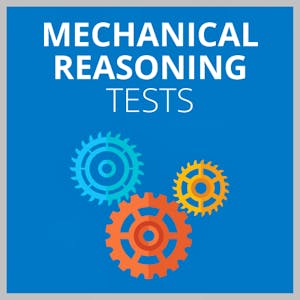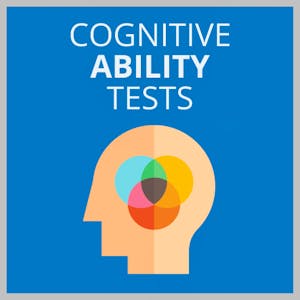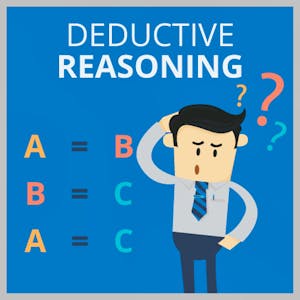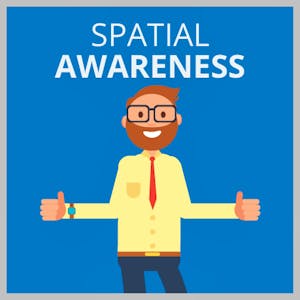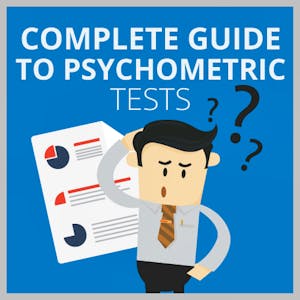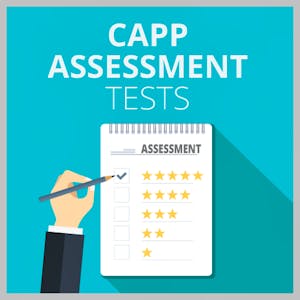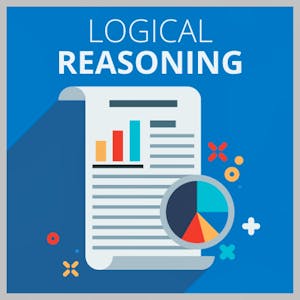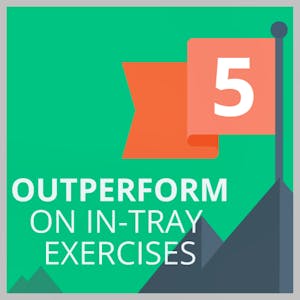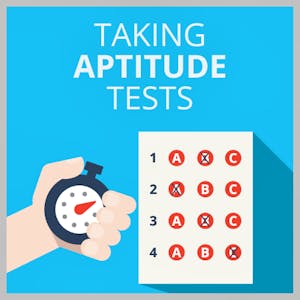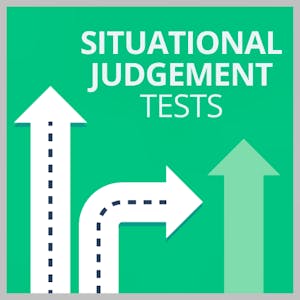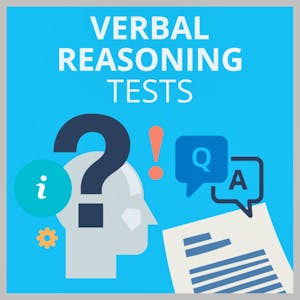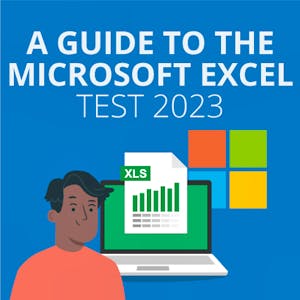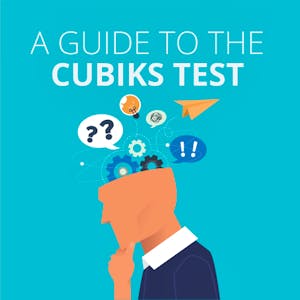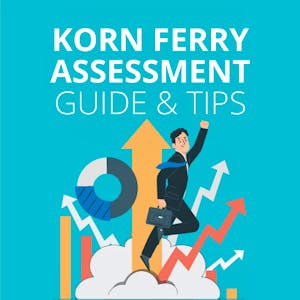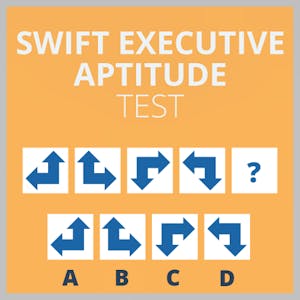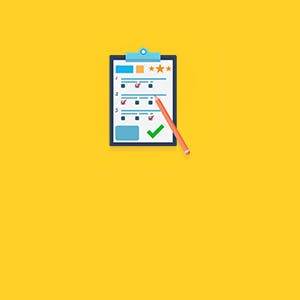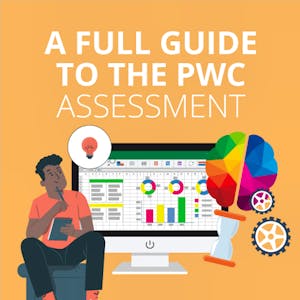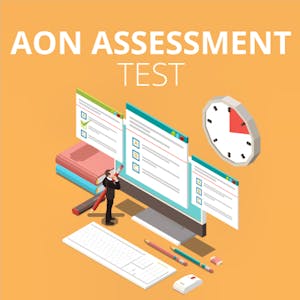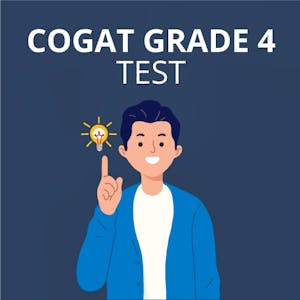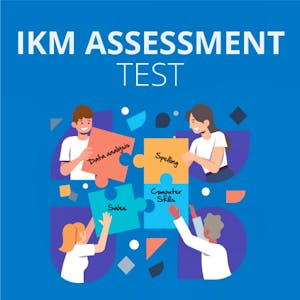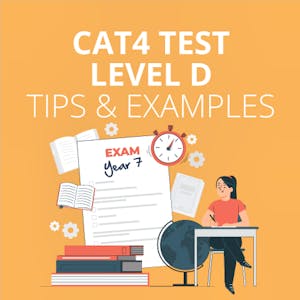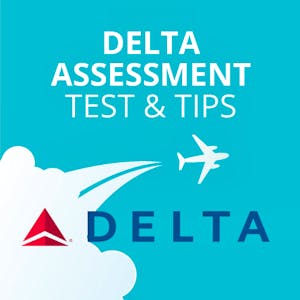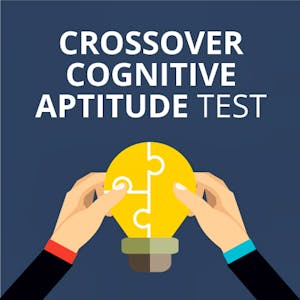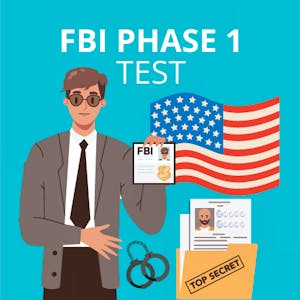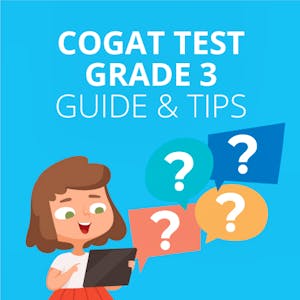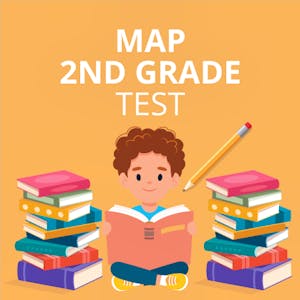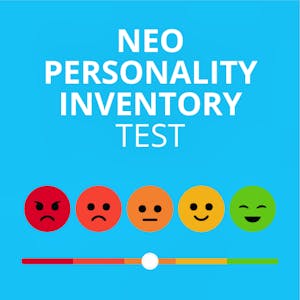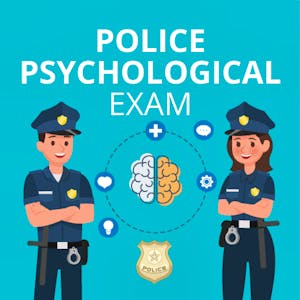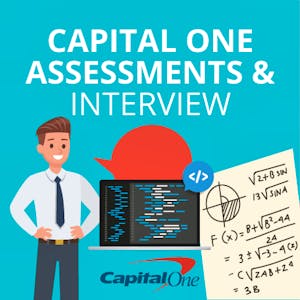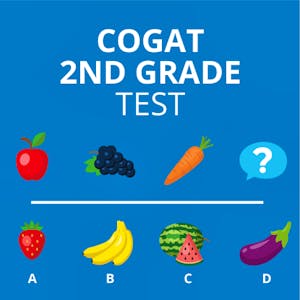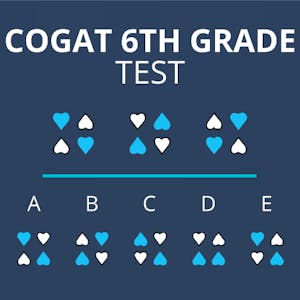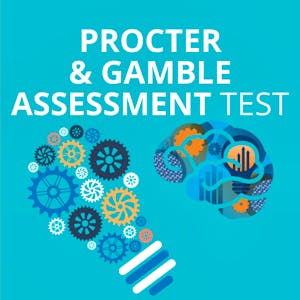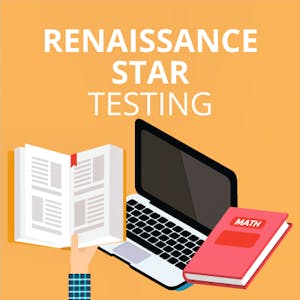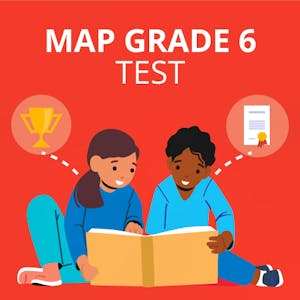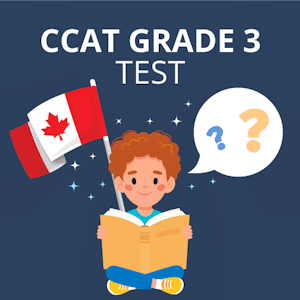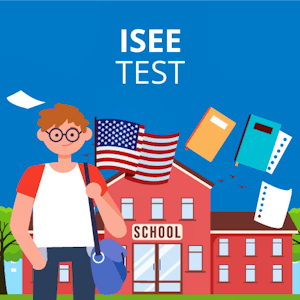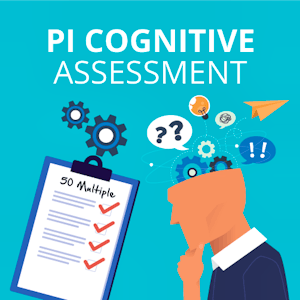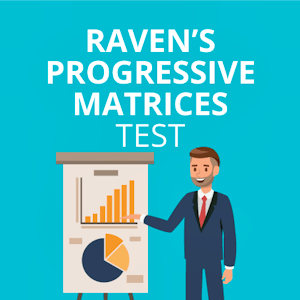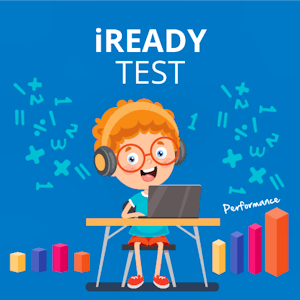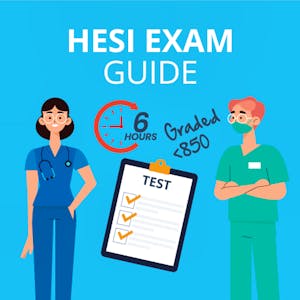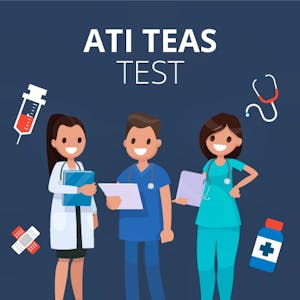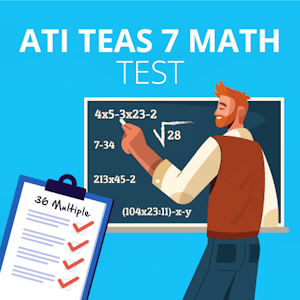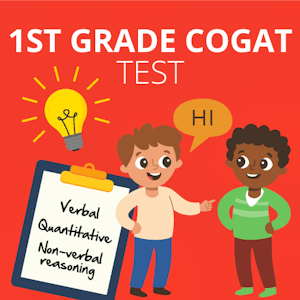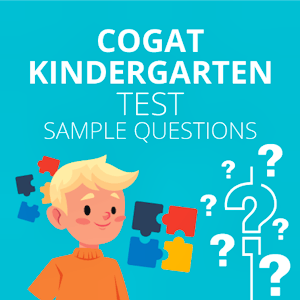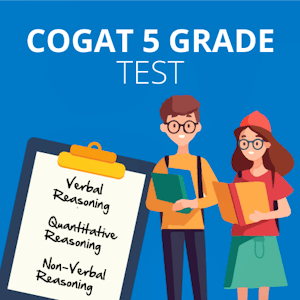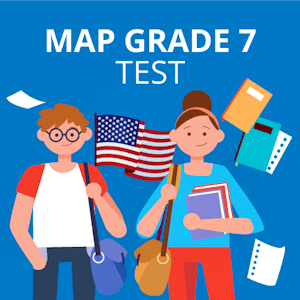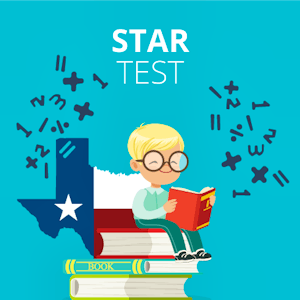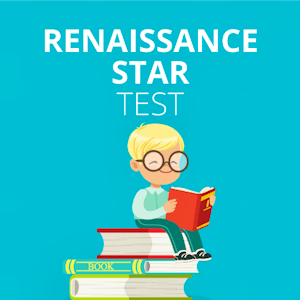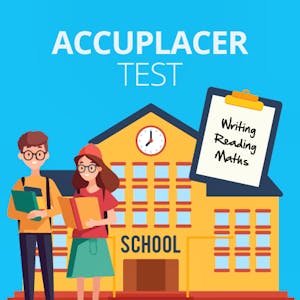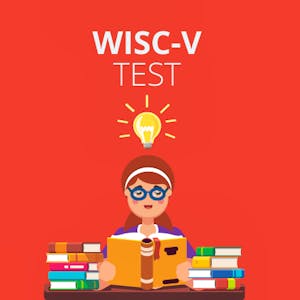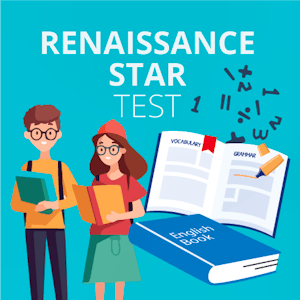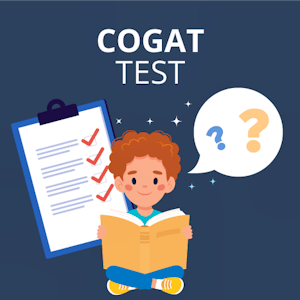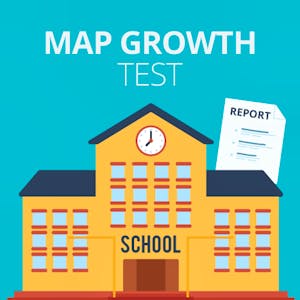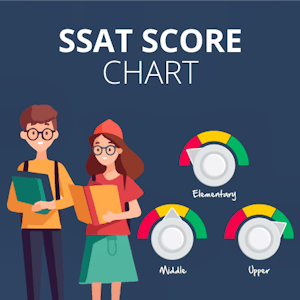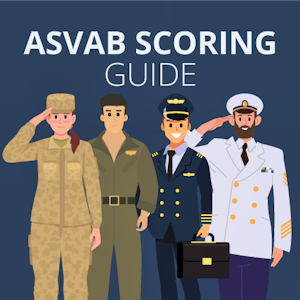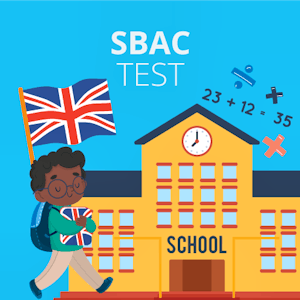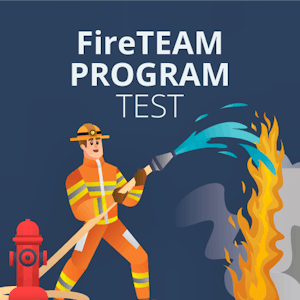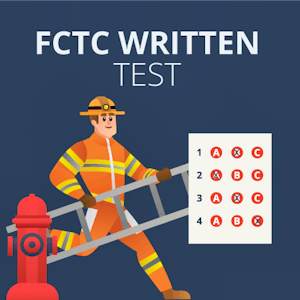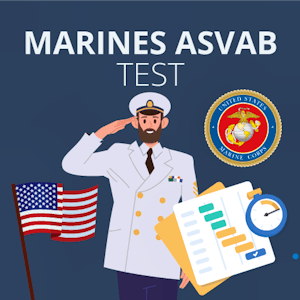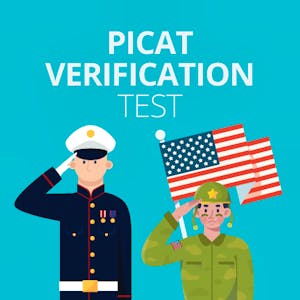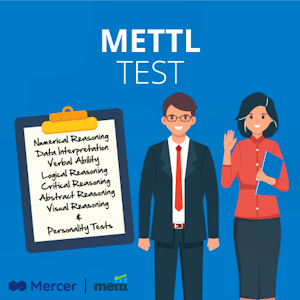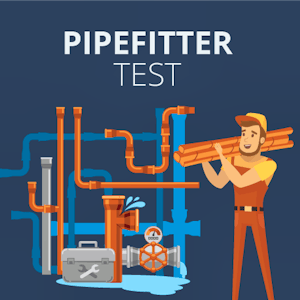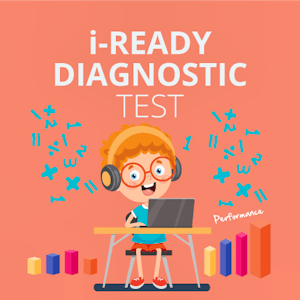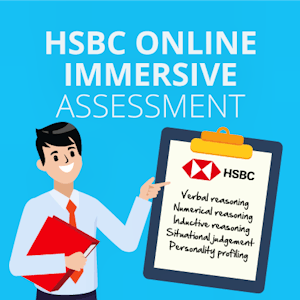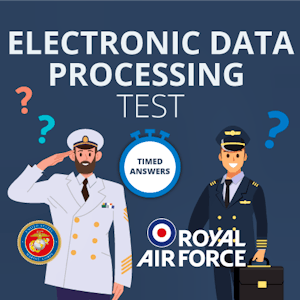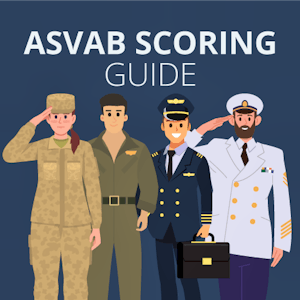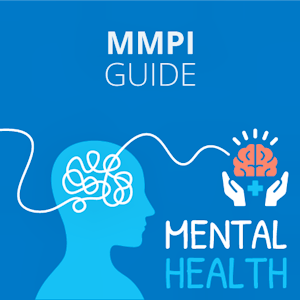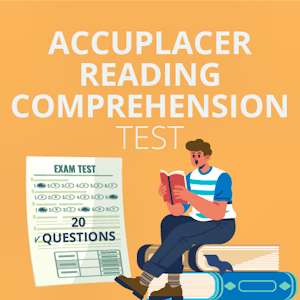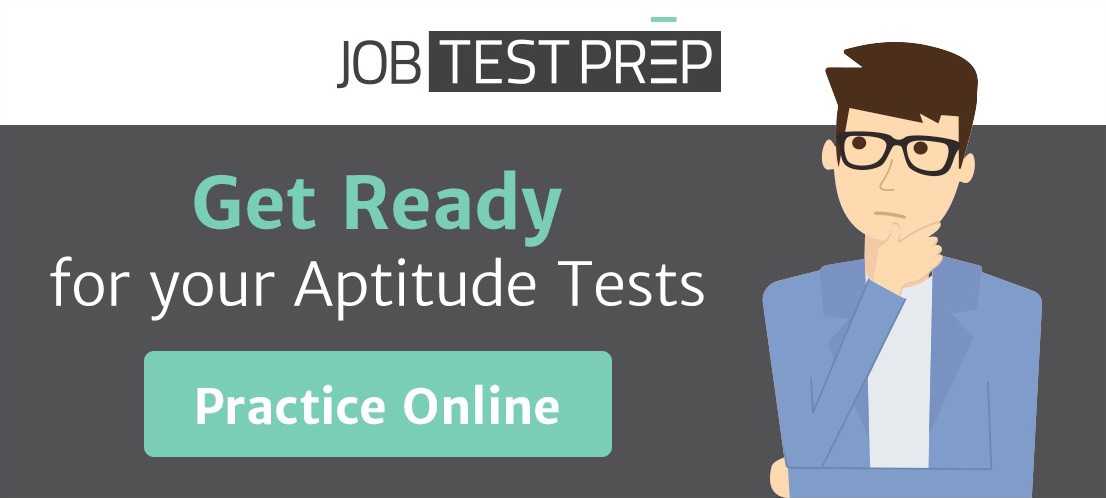THE BEST TEST PRACTICE
Learn how to pass any reasoning test with my tips, training and free practice tests.

Recommended by:





Free Practice Aptitude Tests
Take 16 free practice aptitude tests. Each test comes with answers and fully explained solutions to each question.
What Is the Saville Wave Test?
The Saville Wave test is a personality questionnaire that comes in different versions to suit all sorts of job roles and levels of seniority.
Created by Saville Assessment, the Wave tests are designed to be the ‘best-in-class predictor of workplace performance and potential’.
They blend digital innovation and science to cover aspects of competency, potential, motivation, talent and preferred company culture in one short assessment.
The Wave tests are usually used in recruitment and selection, but they are also used for talent management and succession planning.
There are two main types of Wave tests used in recruitment:
- The Wave Focus Styles
- The Wave Professional Styles
It is becoming increasingly common for employers to ask potential new employees to complete a variety of assessments as part of their recruitment processes.
One example of this is the Thomas International PPA assessment, which is a personality test commonly used by employers who are looking for individuals with specific personality types or strengths in defined areas.
In this article, you’ll learn what the Thomas International PPA Test is, what you can expect if you are asked to take the assessment and how your test will be scored.
We have also included plenty of helpful tips and free Thomas International PPA sample test questions to help you prepare ahead of taking the Thomas PPA assessment.
...The NWEA MAP Growth Test is used in thousands of schools across the US to assess children academically.
The test can be given three times in a school year and helps teachers to plan their lessons so that children can reach their potential and continue to grow throughout their time in education.
In this article, you will learn more about the different levels of the test and the way it is structured to suit different grades, what types of questions are on the tests and how best to prepare your child for success.
...If your child is under the age of 12 and aims to get into a gifted school program, they will most likely be required to take the NNAT test to assess their skills.
If you know that your child is expected to take the exam, you can help them prepare for it by letting them know what to expect.
This article contains the most relevant information concerning the NNAT test, including its purpose, scoring system and levels.
You will also receive plenty of helpful tips on how to help your child prepare for the exam by completing a Naglieri Nonverbal Ability Test sample and working on their weaknesses in each question type.
...The Hogan Business Reasoning Inventory (HBRI) is a scientifically-based aptitude test.
It is designed to assess cognitive ability and a candidate’s preferences for using qualitative and quantitative reasoning skills.
The HBRI is a popular tool for pre-employment screening, particularly in the management, sales and marketing sectors.
If you have been asked to take the HBRI, your test results will offer prospective employers insight into your decision-making skills, problem-solving abilities, approach to processing information and ability to learn from past experiences.
In this article, you can learn what to expect when taking the Hogan Business Reasoning Inventory HBRI test, see examples of the type of Hogan Business Reasoning Inventory questions you might be faced with and guidance on how to prepare for the assessment.
...The MAP Kindergarten Test is a computer-adaptive test that measures your child’s progress throughout their academic career.
The grades K through 2 tests assess mathematics and reading abilities.
The results from these tests allow teachers to identify the gaps in your child’s knowledge and to better understand their ability to learn and retain information.
The MAP test is administered three times in the academic year to ensure your child’s progress is properly recorded.
...The Ramsay Mechanical Aptitude Test is used as part of the pre-employment screening process for a number of roles in different industries.
It is an excellent indicator of how well you can learn on the job, as well as your ability to use basic physics principles and mechanical knowledge to solve problems.
In this article, you will learn more about which job roles require completion of the Ramsay MAT as part of the application process, and what different types of tests are available.
The format of the assessment, as well as the number of questions and the time limit, will also be discussed. You’ll also learn how the Ramsay MAT is scored and what happens next.
There will be example questions that are similar to those you are likely to find on the assessment, as well as some top tips for success.
...The SHL OPQ32 test is the flagship personality test from SHL.
Used by major organizations all over the world, it is considered to be one of the best psychometric assessment tools currently available on the market.
It is a trait-based personality test that is designed to gauge a candidate’s personality attributes and behavioral preferences in the workplace.
A candidate’s test results are analyzed by recruiters, helping them to decide whether a candidate is a good match for the job role they have applied for.
...OLSAT stands for Otis-Lennon School Ability Test.
Children take the test to help schools decide admissions into their gifted-and-talented programs.
Preparing your children for taking the OLSAT is a good idea as it could determine their eligibility and acceptance to extra academic programs that are offered by their schools.
...If you are looking for a career working with the emergency services, then becoming a 911 call handler and dispatcher might be just the role for you.
If you can handle working under pressure, helping the public and are able to deal with difficult and uncomfortable situations with a calm head, then you might have what it takes to be the first port of call in an emergency.
Becoming a 911 call handler and dispatcher means you will need to have some very specific skills and abilities, and as part of the recruitment process, you will have the opportunity to demonstrate your suitability by taking the CritiCall 911 dispatch test.
Used throughout the US for recruiting people for 911 roles, the CritiCall test does not assess your previous experience or your knowledge of the role.
Instead, it is designed to assess candidates on the inherent aptitudes that are needed to be successful in the role.
This article will discuss what the CritiCall test is assessing, the types of questions that you are likely to face and what the recruiters will be looking for.
There will be some example questions, as well as details about what mark you will need to achieve to pass the test.
Finally, there are some CritiCall test prep tips to help you prepare for the assessment and what to think about on the day.
...The McQuaig Word Survey is a type of personality assessment.
Survey responses are used to measure a candidate’s key personality traits and compare these with how they are currently behaving in the workplace.
The results from the survey indicate whether a candidate is behaving naturally in their current role, or whether they are making changes to their behaviour.
This article will help you pass the McQuaig Word Survey assessment test by giving you all the tools and practice questions you will need.
...The Caliper test is an assessment used by employers to gain a better understanding of a candidate’s personality traits, cognitive abilities and motivations.
The Caliper test is used to help employers predict a candidate's suitability for a role.
In this article, we'll take a detailed look at what the Caliper test is and how it is scored.
We’ll also share some tips on how you can perform at your best when taking your Caliper assessment test.
...More and more employers are choosing to use psychometric testing as a part of their recruitment processes as it helps to highlight those candidates who are most likely to be suited to the roles they are looking to fill.
Employers will often use this form of testing when recruiting for mid-to-high level managerial roles or positions that require a specific set of skills.
Using the results of assessments, recruiters and employers are able to see the strengths and skills of individuals as well as being able to predict future performance.
One of the most popular options for psychometric testing is the Criteria Cognitive Aptitude test – more commonly known as the CCAT.
...The Bennett Mechanical Comprehension Test (BMCT), also referred to as the Bennett Mechanical Aptitude Test, is considered the most popular mechanical aptitude test.
However, it is also believed to be the hardest one to pass.
The BMCT requires you to have a knowledge and understanding of physical principles and answer 55 questions about the application of these concepts within 25 minutes.
You typically need to score in the top 20% of candidates to progress to the next stage of recruitment.
...If you have applied for a job, apprenticeship or college course in the UK or Australia, you may have been asked to complete a Basic and Key Skills Builder or BKSB assessment).
The initial BKSB assessment determines suitable applicants for an apprenticeship or places a student in the correct class level on a college course. The assessment tests you on your maths and English skills to identify areas that need improvement.
This guide will explain the BKSB assessment in detail, provide example questions, and answer your queries about the test content and format.
...There are a variety of tests and assessments that can be used by companies for candidates applying for jobs.
One of those is the Thomas GIA Test.
This article will define what the Thomas GIA Test is and who it is for, in addition to looking at what the test involves, how it is scored and tips for the next chance to pass the test.
You will also find Thomas GIA test examples and explanations for each answer.
...The IE Global Admissions Test (ieGAT) is an entrance exam for the IE University (IEU) in Spain.
It covers numerical, logical and verbal reasoning.
Not every IE program requires an ieGAT score. However, as the programs that do are highly competitive, those who take the ieGAT Test must prepare themselves to achieve the best score possible.
This article will help you understand:
- What the ieGAT is
- The structure
- ieGAT scoring
- How to register for the ieGAT
- The best ways to prepare
More and more companies are introducing psychometric testing as a part of their recruitment processes.
This means that, if you are considering changing careers or applying for a new role within your existing industry, you may need to take an assessment.
One of the most popular tests for corporate employers is the test by Sova Assessment.
...The United States Postal Service (USPS) provides extensive career opportunities and seemingly endless possibilities for professional development.
However, anyone looking to work at the USPS must pass a Virtual Entry Assessment designed to find suitable applicants for the role they are trying to fill.
This article covers the Postal Exam 474, including its main parts, how to pass it and how to prepare for the Virtual Entry Assessment.
Let's start by looking at what exactly the 474 Virtual Entry Assessment is.
...Developed by Drs Joyce and Robert Hogan in the 1980s, the Hogan assessment is a collection of tests designed to assess personality traits, leadership skills and cognitive abilities.
The Hogan assessment is generally used as a pre-employment test for management roles.
This article will guide you through the online Hogan tests, provide a range of sample questions, discuss how the Hogan Assessment results are calculated and recommend ways that you can prepare to take the Hogan assessment yourself.
...If you’ve recently applied for a managerial or executive role, you may have been asked to take a Saville Analysis Aptitude Test, also known as the Swift Aptitude test.
The Swift Analysis Aptitude Test was created by Saville Assessment, which is a huge name in the test publishing market.
...The CAT4 cognitive ability test is an examination designed to measure a student’s academic progress.
When the CAT4 test is scored, teachers and parents will be given a summary of the academic potential of the student.
Any student taking the test will be asked questions that will measure their non-verbal reasoning abilities, verbal reasoning skills, quantitative reasoning abilities and spatial awareness.
In this article, you’ll learn more about what types of questions are asked to examine these skills.
...The Korn Ferry Leadership Potential Assessment (KFALP) is used to test candidates to see if they have the potential to become leaders and managers.
It uses seven different categories, known as Seven Signposts, to assess potential leaders:
- Drivers
- Experience
- Awareness
- Learning Agility
- Leadership Traits
- Capacity
- Derailment Risks
This article will examine the theory behind the assessment, the different topics that are tested and how the assessment is scored.
There will also be example questions so that you know what to expect when you take the KFALP and some tips to help you score as highly as possible when you take the test.
...Pymetrics tests identify specific behavioral characteristics and traits.
This article examines why pymetrics tests are used and what to expect in your assessment.
Tips are included to help you get the best results.
...The McQuaig Mental Agility Test (MMAT) is a 15-minute timed test that is designed to assess your ability to think quickly.
In this short test, you will face questions that will allow you to demonstrate your speed of thought and general mental agility, which are useful aptitudes when it comes to many jobs in different industries.
In this article, find out more about the structure of the test, the different types of McQuaig Mental Agility test questions and what to expect on the day. You’ll also get some mental agility practice test questions and top tips to help you be successful in the MMAT.
...The Federal Bureau of Investigation (FBI) is responsible for the enforcement of federal law and the protection of national security in the US.
Working for the FBI can be highly stressful. As a special agent for the FBI, the working week is likely to be 50 hours or more.
Special agents must be willing to be based anywhere in the world. They are expected to carry a firearm and work in potentially dangerous situations.
With this in mind, the FBI has a rigorous application and selection process for potential new recruits. It can take more than 20 months to complete the entire process and commence employment with the FBI.
...This guide to the USPS postal exam 955 will take you through the different sections of the test, including example questions, provide tips on how you can prepare for the exam and answer several frequently asked questions.
The USPS postal exam 955 is used to screen applicants for mechanic and technician positions, such as electronic technicians or motor vehicle mechanics. It also sometimes referred to as the postal maintenance 955 exam, USPS maintenance mechanic 955 test or the 955 maintenance exam.
It tests applicants’ suitability by assessing personal characteristics, work experience, and electronic and technical knowledge and skills.
The USPS postal exam 955 replaced the previous 931, 932 and 933 exams.
The USPS postal exam 955 is free of charge, but you will need access to the internet and an email address.
...If you are looking to work in the United States Postal Service, you will need to pass the USPS Postal Exam 476.
The USPS Postal Exam 476 is an online test that screens for the best candidates. The exam is used to find suitable candidates for a range of positions, including mail processing clerk, data conversion operator and clerk-related positions.
This article will outline what the USPS Postal Exam 476 includes, with particular attention to the separate sections of the examination.
In addition to this, how the exam is scored and how you can best prepare for it will be covered. There will also be a list of frequently asked questions for you to refer to if you have any doubts.
...A List of Amazon Assessment Tests Available for Practice in 2024
- Amazon Work Simulation Assessment
- Amazon Maintenance Technician Test
- Amazon Coding Assessment
- Amazon Workstyle Assessment
- Amazon Area Manager Assessment
- Amazon Operations Manager Assessment
- Amazon Online MBA Assessment
- Amazon RME Apprenticeship Skills Battery Test
- Amazon Financial Analyst Assessment
- Amazon ATA Technical Assessment
- Amazon Control Systems Technician Test
- Amazon Warehouse Assessment Test
The Amazon assessment test is an essential way for the corporation to find the best-suited employees.
It is a series of challenges used to evaluate all its candidates during the recruitment process.
Amazon online assessments typically include both numerical and verbal reasoning tests.
These types of tests examine a potential candidate’s logical skills.
Candidates will also have to sit work-style assessments that simulate the working environment at Amazon.
Other Amazon exams include:
- The Amazon coding assessment (also known as the Amazon SDE online assessment)
- The work sample simulation
- An Amazon versant test
These last two, amongst others, will be discussed later in this article.
This Amazon reviewer job article will also discuss how to pass the Amazon assessment tests, some Amazon assessment answers you should know and what you need to do to best prepare yourself.
There is also a comprehensive list of frequently asked questions from those who are interested in taking these Amazon job tests to find employment with the company.
...What Is the SHL Verbal Reasoning Test?
The SHL Verbal Reasoning Test is a graduate-level and above pre-employment aptitude test that is used in graduate and management recruitment for many roles across different industries.
The test is usually taken online, and it is designed to evaluate candidates on their ability to understand written information and make informed, reasoned and logical decisions based on that information.
SHL is a well-established test publisher, providing tests for more than 10,000 companies around the world. It offers a range of tests, including psychometric, behavioural and personality assessments that are based in occupational psychology and aptitude science.
The tests have specific aims – and recruitment teams use SHL tests like the Verbal Reasoning Test to filter through similarly qualified candidates to find the applicants who have what it takes to be successful in a graduate or management level role.
When taking a verbal reasoing test, bear in mind that you might also be asked to take numerical reasoning tests, logical reasoning tests or personality tests along side.
...IQ stands for intelligence quotient and is usually thought to represent the reasoning skills of individuals.
The idea of intelligence relates to how quickly people can solve problems or puzzles, use logic to answer questions, or quickly recall information and facts they’ve heard.
The first type of IQ test was created by a French psychologist named Alfred Binet.
The assessment that he made is still used and is known as the Stanford-Binet intelligence test.
...Considering cheating on your GMAT (Graduate Management Admission Test) Exam?
Want to know how to do it, if you should do it and what the consequences will be?
Well you came to the right place!
Read on to find out more about cheating on the GMAT exam, but be warned...
... it's certainly not something I advise!
...Do you have an upcoming online aptitude test?
Are you looking for the best aptitude test prep material to give you the very best chance of getting the highest possible grade?
If so, this article will help you.
Aptitude tests are a crucial part of your job search, and you usually only have one chance to showcase your skills.
Psychometric aptitude tests can measure many different aptitudes and skill sets, in many different formats:
- Numerical reasoning
- Verbal reasoning
- Diagrammatic or inductive reasoning
- Mechanical reasoning
- Personality types
- Situational judgement and work environment tests
- Work style tests
Aptitude tests can be challenging and it is important to be fully prepared before you attend your job interview or assessment centre.
Several free and paid aptitude test preparation websites offer preparation packs to help you score the best you can.
...Those dreaming of working for the TSA will most likely need to take a challenging exam called the TSA CBT Test during the hiring process. Here we’ll look at exactly what it involves and how you can make sure you pass it. Read on to find out more.
If you plan to work as an inspector, manager, marshal or security officer in any agency governed by the Transportation Security Administration, you must pass the TSA CBT test as part of your application process.
Read on to learn more about this assessment, including its purpose, what types of questions it has, how challenging it is and how to prepare for it.
You'll also be provided with a few example questions to help you get an idea of what this test looks like.
Let’s get started.
...Aptitude tests are administered to understand your inherent abilities to reason and respond to specific tasks.
They are widely used in various forms to screen candidates or evaluate existing employees for a future job role.
The most generic and widely used aptitude tests are curated to measure different facets of your abilities, mainly on the following areas:
Apart from these base types, there are various other specialized aptitude tests which you may face in specific industries or based on your role in different career stages.
We have discussed each of the most common job related aptitude tests in detail.
Illustrative examples and helpful hints are provided throughout to aid your preparation.
Read on to find out more.
...The Cognify test is a game-based cognitive assessment designed to measure an individual's cognitive aptitude to measure key job performance linked abilities and skills in a prospective candidate.
The Cognify test was once a product of Revelian, an Australian assessment company, but was later acquired by CriteriaCorp.
Moving away completely from the question-answer based template of traditional tests, Cognify uses an innovative approach where candidates don't face a series of questions on a screen.
Instead, the Cognify Assessment comprises 6-7 timed game-based mini-tests categorized into three cognitive abilities categories:
- Problem-Solving
- Numerical Reasoning
- Verbal Knowledge
Well, before you start raising your eyebrows at the mention of ‘game-based’ and dismiss it as just another fad, pay attention!
Cognify assessment is credited as having brought a paradigm shift in the field of psychometric testing.
Many Tier-I graduate recruiters globally have started using this assessment in their candidate selection process.
...The train driver test is used to establish whether a candidate is suitable for work as a train driver. This unique suite of tests includes psychometric assessment tools such as:
- The Group Bourdon Test (GBT)
- Test of Everyday Attention (TEA-OCC)
- Adaptive Tachistoscopic Traffic Perception Test (ATAVT)
- Situational judgement tests
- Vigilance tests
- Written communication tests
What Is the Train Driver Test?
In most countries, you will need to sit the train driver online test if you want to work as a train driver. If you have been asked to sit the assessments, there is no train driver psychometric test cost associated with the train driver exam.
Working as a train driver is a challenging and demanding role. As a train driver, you must be able to ensure the safety of passengers at all times.
The UK’s train driving tests are some of the most challenging. As well as testing aptitude for the job role, they are used to assess whether candidates have the mental abilities to cope with the stress and demands of the job role.
The train driver test is used to establish whether a candidate is suitable for work as a train driver. The train driver test is a unique group of psychometric tests for train drivers designed to assess the psychomotor and cognitive skills needed to work safely as a train driver.
...The Predictive Index (PI) test is a popular type of pre-employment testing used to accurately measure an individual’s cognitive ability and behavioral profile during the hiring process in a wide range of industries and organizations. They are most commonly used during the early stages of the recruitment process.
The PI cognitive test assesses verbal, numerical and analytical reasoning ability.
The PI behavioral test creates a behavioral persona that describes character traits and tendencies.
...A mechanical aptitude reasoning test is an important way to assess your knowledge on mechanical topics for potential roles in the army, emergency services and many other professions. Here, you will get all the information you need on what a mechanical comprehension test is and how to pass it.
Those applying for jobs related to the army, the emergency services engineering service, and similar occupations that require mechanical aptitude, are likely to be asked to take a mechanical reasoning test as part of the recruitment process.
Mechanical aptitude tests assess knowledge in electricity, optics, pressure and other fields of mechanics related to a specific industry.
From this article, you'll learn what mechanical reasoning tests look like, when to take them, what to expect from these assessment types, and how to practise and prepare for them.
Let’s get started!
...If you would like to take a free practice Cognitive Ability Test before reading this article, click here.
If you would like to purchase an online Cognitive Ability Test prep pack, visit our partner website JobTestPrep.
The following tests are common cognitive ability tests:
- Numerical Reasoning
- Verbal Reasoning
- Spatial Reasoning
- Mechanical Reasoning
- Logical Ability Tests
- Space Visualization
- Information Processing
- Visual Pursuit
- Manual Speed and Accuracy
- Information Processing
Have you been asked to take a Deductive Reasoning test as part of an upcoming interview process?
Continue reading to find out more about this type of test, including:
- Why employers use Deductive Reasoning Tests.
- How you can improve your performance at Deductive Tests.
- What types of questions you will be asked during the Test.
What Is A Deductive Reasoning Test?
Logical thinking or deductive reasoning tests are used by employers to measure an applicant’s ability to make logical arguments and form sound conclusions.
During this type of test, you will be presented with a variety of scenarios, statements and arguments for which you will need to apply a given set of rules to determine the validity of the corresponding conclusion.
...Spacial Reasoning Definition
A spatial awareness test is a type of assessment that tests your ability to think in three dimensions and use your imagination to see movement through space.
Someone with good spatial awareness will be able to see in their mind how different shapes interact and be able to manipulate them to make a reasoned and logical decision.
The test is based on pictures, diagrams and shapes. You will need to mentally manipulate the presented image by disassembling or reassembling, rotating, seeing it in a mirror image or from different angles, or otherwise visualizing it differently to find the right answer to the question from the multiple-choice options provided.
Spatial awareness is something that we use to a greater or lesser degree every day, from understanding our position relative to other things around us to imagining the route we will take to get from one place to another.
Spatial reasoning tests are distinct from other similar assessments such as diagrammatic reasoning tests and abstract reasoning tests. It is important to understand how they differ as they are often included in aptitude tests and cognitive assessments alongside spatial reasoning tests.
...Psychometric tests are often used by organizations as part of the recruitment process. Different types of psychometric tests are designed to measure various aspects of cognitive ability, reasoning capabilities and personality traits. Potential employers use the results to assess a candidate’s suitability for a role. A psychometric test is generally administered online; this helps hiring managers filter applicants quickly and easily.
...As Capp Assessment Tests become more common perhaps you have encountered one for the first time.
This can be a bit daunting and, since they look and feel a bit different to more traditional psychometric reasoning tests, it isn’t necessarily obvious what you need to do to be successful…
Don’t worry.
With the insight and tips we share with you below, you’ll be smashing your tests in no time.
FREE BONUS: Get free unlimited access to Capp test practice (for 30 minutes) on our partner website JobTestPrep.
What are Capp Assessment Tests?
Capp are a consultancy and psychometric test publisher who specialise in Strengths Based Assessments.
They also offer a number of different psychometric tests that are widely used many major organisations including Google, Atkins, Amazon and RBS.
Their Assessment Tests include critical reasoning, numerical reasoning, verbal reasoning.
Psychometric reasoning tests like these are very common.
This is because they are a cheap and efficient way for organisations to identify candidates who aren’t likely to be able to succeed in a particular job.
Because they are often used to filter candidates out of application processes, they are sometimes called screening tests or gateway tests.
Candidates like you have to achieve a particular level of performance in order to progress in the selection process.
With practice you can dramatically improve your performance. Practice is the best way to improve your test scores.
In the rest of this article we’ll show you how the tests work, suggest how you can prepare, and then direct you towards some practice tests so that when the big day comes you are ready.
Before you do anything else, take a look at the Capp website, where you can take free practice tests.
How do Psychometric Reasoning Tests Work?
In general, psychometric reasoning tests challenge users to answer a series of questions and compare their performance on a test with the average performance level of a reference or ‘norm’ group.
This is typically made up of individual with similar characteristics, such as education level, nationality or workplace seniority.
If you do better than most of the norm group you will receive a high score, whereas a low score suggests that your performance was weaker than most of the norm group.
Usually, a minimum standard of performance necessary for success in a role is identified at the start of an assessment process, and all candidates that don’t meet this level will be unable to progress through the process.
What makes Capp Assessment Tests Different?
Capp Assessments are ‘Next Generation’ psychometric aptitude tests; this means they might look and feel a bit different to other psychometric tests you have completed in the past.
The main difference between the Capp tests and more traditional psychometric ability tests is that the Capp tests are responsive.
This means that the actual questions presented to a candidate will depend upon their performance on the previous questions.
Capp say that the responsiveness of their tests and the size of their question bank mean that the chances of two candidates taking exactly the same test is currently less than one in a billion.
In practice, this means that if you’ve been able to quickly and accurately solve the previous questions, you can expect to be presented with incrementally more challenging questions.
By contrast, if you have made a number of errors, the test will present questions at a lower level.
The aim of the tests is to work out what your maximum ability is. Or put another way, what the most challenging level you are capable of working at is.
Another thing that makes Capp Tests feel different is that they have no time limit (although the time you take to complete the test does effect the score so you still need to work as quickly as you can).
This takes a bit of the pressure off and can make taking these tests rather less stressful than others.
Finally, the variety of question types and the format of the questions in Capp Tests can be different to those used by more traditional test publishers.
Let’s take a closer look at this:
Numerical Reasoning Tests
Traditionally numerical reasoning tests require candidates to select the correct answer from a number of potential options.
The Capp numerical reasoning test still does this, but it also requires candidates to rank potential answers or to type their answer into a free-text box.
This makes it harder to guess the correct answers.
Verbal Reasoning Tests
Verbal reasoning tests typically give you a passage of text to read and then ask you whether a number of subsequent statements are true or false, based on the information contained in the passage.
This question type is included within the Capp Verbal Reasoning Test, but there are also a number of different question formats included.
This means that as well as testing verbal reasoning, the Capp test can also assess verbal dexterity, comprehension, interpretation, and adaptability.
As well as traditional multiple choice questions, the test also presents:
- Free text editing: This type of question requires you to type your answers directly into the question. You might be asked to correct spellings or grammar, or edit a passage of text.
- Bucket sort: You will be presented with two categories/styles of writing; your task is to place each item presented to the category/style of writing that it best fits.
- Drag and Drop: This type of question requires you to drag statements or words to the place that they best fit.
- Ranking: These questions can be quite subtle and require you to really understand the nuance of language and language use. You will be presented with a number of statements and asked to rank these based on some feature of the text, such as positivity.
- Selecting the most appropriate word to fill in the sentence: You will be presented with a passage of text with a number of blanks in it, for each blank space you must select the most appropriate word to fill the space from a drop down menu.
Critical Reasoning Tests
The Capp Critical Reasoning test evaluates your ability to think critically in a number of ways.
In each instance, a passage of information is presented followed by a series of statements, your task is to select the appropriate response from the drop down menu.
Questions focus around five areas:
- Inference: rating the probability of truth of inferences based on given information
- Recognition of assumptions: identifying unstated assumptions underlying given statements
- Deduction: determining whether conclusions follow logically from given information
- Interpretation: weighing evidence and deciding if generalisations or conclusions based on data are warranted
- Evaluation of arguments: evaluating the strength and relevance of arguments with respect to a particular question or issue.
Are you considering cheating on your upcoming SHL tests?
In this full disclosure article, I’ll tell you why people cheat on tests, how people cheat, and whether or not it’s worth doing..
Our view?
Don't cheat!
Practice... it's the only legitimate way to improve your scores, you'll sleep better at night and probably get better results in your tests too.
Still want to read about how to cheat on a test?
OK.
Here goes!
...Numerical Reasoning Tests can be very tricky.
And when it comes to results, preparation and practice are key.
But that's easier said than done.
If you're researching this type of aptitude test for the first time or if you want to improve your numerical ability, perform better on tests and get more job offers this article will provide some practical strategies that you can use immediately.
So...
For the best chance of success, read the article below slowly, work through the example questions, follow our tips and actionable advice and then start taking practice tests.
Ready to get started?
Let's go!...
Want to try a practice test before reading this article?
You can take our free numerical test right here:
...Logical reasoning tests are a little different to your average psychometric test.
With this type of assessment, there are many different variations so it is sometimes difficult to determine which aspect of logical reasoning you will be assessed on.
With this guide, you’ll learn the difference between inductive and deductive reasoning tests, and some tips for maximising performance.
Designed to evaluate how you interpret patterns, shapes, numbers and other data to reach logical conclusions, the assessments are used across a number of different sectors at all levels of recruitment from entry right up to managerial positions.
...The in tray exercise (also called an e-tray exercise) is a popular assessment activity which employers use to evaluate the skills of applicants in a workplace situation.
If you have an In Tray exercise coming up as part of your interview process, this article will help you prepare.
Within these exercises, candidates will be presented with a given scenario, along with a set of tasks to complete which may include things like responding to email messages, reports or briefing documents.
...Aptitude tests are short tests employers use to assess whether a candidate has the level of competency necessary for success in the role.
The tests are used to see if a candidate has the skills necessary to do the job.
Aptitude tests are standardized, for the most part, and the results of all the candidates are compared to each other to see which candidate may be the best for the job.
Aptitude tests provide employers with a quick way to assess a candidate’s ability to perform in high-pressure situations and think in critical ways as they would if they were on the job.
...What Is a Situational Judgment Test?
A situational judgement test (SJT) is a psychometric test that is often used as part of the recruitment process for graduate and managerial positions as well as roles that are customer-facing in a wide range of industries.
The SJT is designed to assess how a candidate deals with work-related problems and situations, focusing on essential aptitudes, competencies and soft skills that are not always easy to evaluate in other ways.
Although SJTs are usually bespoke to the company (or in some cases, the specific role), they tend to follow the same basic structure.
Each question is formed by presenting a fictional yet realistic work-based scenario. This might be text-based, it may include some illustrations or it could be animated or acted out in a video.
Following the scenario, there will be several options that you can choose from, each giving a possible course of action to follow to solve the issue that is presented in the situation given.
The answer that you choose will be compared to the benchmark answers that the recruitment team is using – these represent the core competencies for the role, as well as alignment with company values.
...SHL assessment tests are important steps in many job interviews and career advancement opportunities. Therefore, it is essential to have a comprehensive understanding of how the different types of SHL tests work and how you can prepare for them in order to get top scores.
In this article, we will provide an overview of how SHL assessments work, sample SHL test questions, tips on improving your test performance, and strategies for prepping and succeeding with any SHL test.
What Is an SHL Assessment Test?
SHL is a global assessment company that is well known and recognised as a leader in pre-employment psychometric tests; the tests that SHL publishes are used by 75% of the FTSE 100 and they are available in more than 40 languages.
So if you are applying for a new role (especially for a graduate position), you are likely to come across them in the recruitment process.
In addition, the company offers consultancy and management services via its TalentCentral platform.
The SHL assessment are a series of tests that can be delivered individually or in a battery, and some of them are bespoke to the company that is using them, making them an excellent way for the recruitment team to ensure that the applicants for a role have the basic competencies, personality traits, work behaviours and cognitive abilities to be successful.
...Sind Sie auf der Suche nach kostenlosen psychometrischen Tests zur Übung?
Dann ist diese Seite genau das Richtige für Sie.
Was ist ein psychometrischer Test?
Psychometrische Tests (auch Eignungstests genannt) sind fester Bestandteil von Jobinterviews vieler Unternehmen auf der ganzen Welt.
Diese Tests bestehen normalerweise aus einer Reihe von zeitlich erfassten Fragen, die meist numerischen (mathematischen Fragen), verbalen (Fragen zum Leseverständnis) oder logischen (diagrammatischen Fragen) Ursprungs sind.
...Testes psicométricos (também conhecidos como testes de aptidão) são uma parte comum do processo de entrevistas de emprego em muitas companhias no mundo todo.
Geralmente, esses testes consistem de uma série de questões com um certo tempo de resposta.
As questões costumam ser numéricas (questões matemáticas), verbais (compreensão textual) ou lógicas (questões de diagrama).
...Testes SHL. Se você está lendo isso, há uma boa chance de você ter acabado de descobrir que fará um desses testes difíceis como parte de um processo de recrutamento em andamento.
Se você chegou tão longe e agora está se sentindo tenso para se sentar na frente de um ‘abstract quiz’, não se preocupe...
Nós cuidaremos de você.
...El Razonamiento Inductivo está basado en patrones y es otra variante de las muchas pruebas psicométricas utilizadas por los empleadores como una forma de determinar la idoneidad de un candidato para sus roles.
En un nivel similar al del razonamiento esquemático, el razonamiento inductivo probará tu habilidad para aplicar la lógica y la razón para la resolución de problemas.
Cómo funcionan las pruebas inductivas
Dentro de la prueba se te presentará una serie de diagramas los cuales se vincularán mediante una regla subyacente.
Esta regla afectará el diseño del diagrama y tu tarea será identificar el patrón.
Bonificación: puedes obtener acceso ilimitado y gratuito a la práctica de prueba (durante 30 minutos) en nuestro sitio web asociado JobTestPrep: Clic aquí.
Por lo general, se espera que los candidatos seleccionen entre 4 y 6 posibles respuestas completas bajo condiciones de tiempo.
Las pruebas de razonamiento inductivo a menudo complementan otras pruebas como las de razonamiento verbal o numérico.
A veces las empresas requieren que complete una prueba de juicio situacional o un cuestionario de personalidad junto con la evaluación de razonamiento inductivo.
Los resultados de cada prueba se revisarán individualmente y luego colectivamente para determinar si tú serías una buena opción para la empresa.
¿Por qué los empleadores utilizan estas pruebas?
Algunas veces se las denomina prueba de razonamiento abstracto, las evaluaciones de razonamiento inductivo están diseñadas para evaluar tus habilidades en la resolución de problemas y el razonamiento lógico.
Cuando completes la prueba, los reclutadores buscarán tu capacidad para trabajar de manera efectiva con información desconocida para alcanzar una solución viable.
Las pruebas se utilizan a menudo para evaluar tu capacidad de pensar creativamente, aplicar habilidades analíticas y diseñar soluciones innovadoras, mientras que a menudo son un indicador de tu nivel general de inteligencia.
Como tal, es esencial que realices el trabajo preparatorio necesario antes de la prueba real para asegurarte de poder completarla exitosamente y crear una buena impresión.
La prueba de razonamiento inductivo es frecuentemente usada por empleadores corporativos; es común esperar que se complete al menos una prueba psicométrica como parte del proceso de reclutamiento.
Los empleadores utilizarán estas pruebas para ver la eficacia con la que trabajas bajo presión y tu enfoque de la evaluación.
Las pruebas de razonamiento inductivo son usadas predominantemente en los roles técnicos o aquellos que requieren una resolución frecuente de problemas y los empleadores las utilizan para evaluar cómo identificas patrones, con qué eficacia puedes identificar reglas y consistencias de datos y si puedes predecir la secuencia de objetos a medida que evolucionan.
En términos de evaluación psicométrica, el razonamiento inductivo, el razonamiento abstracto y el razonamiento esquemático son tres pruebas que a menudo se superponen con la evaluación. Los proveedores utilizan nombres diferentes para cada uno, lo que hace que las cosas sean un poco más confusas.
Estas pruebas ciertamente varían entre los empleadores y la etapa en el proceso de reclutamiento también será diferente.
Algunas empresas los utilizan como un ejercicio de selección previa a la entrevista para limitar un conjunto de candidatos, mientras que otras organizaciones pueden usarlos hacia el final del proceso de reclutamiento o como parte de los días de evaluación.
Contenido de la prueba de Razonamiento Inductivo
La mayoría de las pruebas de razonamiento inductivo presentan una serie de secuencia de palabras, ilustraciones o formas y te piden que decidas cuál es la siguiente.
Esto requiere prestar atención a los detalles, a la resolución de problemas y perseverancia para alcanzar la respuesta requerida, todo lo cual se evalúa en condiciones de tiempo, lo que agrega aún más presión.
La prueba en sí misma requerirá que compares varios elementos incluyendo colores y formas, o que los clasifiques basándote en cantidad o tamaño.
Como un ejemplo, se te proporcionará un juego de seis cuadros conteniendo una cantidad de formas y luego se te pedirá que elabores una secuencia lógica para cada cuadro.
Para obtener la respuesta correcta, deberías identificar un patrón tal como similitudes, diferencias o una combinación de ambos.
Estas tareas pueden parecer extremadamente complejas, por ello es importante realizar tantas prácticas de pruebas similares como sea posible antes de la prueba real y también tanta práctica como puedas antes de la entrevista o del día de evaluación.
Asegúrate de llegar a tiempo y haber dormido bien la noche anterior, de lo contrario, es posible que te falte la concentración y que parezca que no entiendes lo que te piden que hagas.
Una aproximación a las Pruebas de Razonamiento Inductivo
Cuando comienzas la prueba, lee la pregunta detenidamente y trata de observar solamente a un elemento de la forma a la vez.
Es muy fácil sentirse abrumado por el contenido de una evaluación de razonamiento inductivo, por lo que la mejor manera de abordarla es intentar y decidir el patrón, considerando específicamente el tamaño, la orientación y la ubicación de la forma interior.
Los patrones están diseñados para ser complicados en tomarte el tiempo y utilizar tu lógica para resolver el problema.
Si estás teniendo una particular dificultad en identificar un patrón, trata de observarlo desde el final en lugar del principio.
Esto puede resaltar de manera efectiva algo que quizás hayas omitido usando el método tradicional de revisar las formas.
Toma conciencia de la hora pero no mires el reloj, y no te asustes en la medida de lo posible; esto sólo hará las cosas más difíciles.
Las pruebas de razonamiento inductivo son creadas para ser completadas bajo presión, por lo que la práctica de completar las pruebas en condiciones de tiempo puede ayudar de manera significativa.
Practicar es una de las mejores maneras de prepararte mentalmente para cualquier prueba psicométrica y el razonamiento inductivo no es diferente a ello.
Nada te preparará mejor para la evaluación que realizar una cantidad de exámenes de práctica, muchos de las cuales puedes encontrar en línea gratuitamente.
Cuando te familiarizas con el formato de la prueba y te acostumbras a responder preguntas rápidamente y trabajar bajo presión, es mucho más probable que tengas éxito que si no realizas ningún trabajo de preparación o práctica anteriormente.
...¿Qué son las pruebas psicométricas?
Las pruebas psicométricas (también conocidas como Pruebas de Aptitud) son ahora una parte común de los procesos de selección y evanotluación, por lo tanto un requisito necesario para solicitar trabajo.
Si tú aún no has completado una, es muy probable que lo necesites en algún momento en el futuro.
Con esto en mente, hemos preparado para ti la Guía actual para las pruebas psicométricas para explicar qué son, cómo se utilizan y cómo completarlas con éxito.
Antes de comenzar con el artículo a continuación, ten en cuenta que tenemos tres pruebas psicométricas de práctica disponibles para que las pruebes.
...Las pruebas de razonamiento verbal están diseñadas para examinar tu nivel de comprensión del pasaje de un texto.
Estas pruebas son un ejemplo de una prueba de habilidad (a veces conocida como pruebas de aptitud) y son utilizadas por los empleadores en combinación con pruebas de razonamiento numérico y pruebas de razonamiento lógico.
Las pruebas de razonamiento verbal tienen como objetivo identificar tu capacidad máxima de comprensión, o en otras palabras, el párrafo de un texto más desafiante que tú podrás entender.
...Numerische Tests können knifflig sein. Übung und die richtige Vorbereitung sind der Schlüssel zum Erfolg.
Aber das ist leichter gesagt als getan…
Wenn Du zum ersten Mal über diese Tests nachliest oder wenn Du nach Wegen suchst um deine Fähigkeiten zu verbessern, besser abzuschneiden und mehr Interviews und Jobangebote zu bekommen, ist dieser Artikel ideal für Dich.
Hier erfährst Du von Strategien die Du sofort praktisch einsetzen kannst.
Falls du einen Übungstest machen möchtest kannst du hier jederzeit einen der kostenlosen numerischen Tests ausprobieren. Dieser Test beinhaltet zehn Fragen (mit Antworten und ausführlichen Erklärungen).
Also…
Wie kann man sein Ergebnis so schnell und effektiv wie möglich verbessern, selbst bis in der 99% Bereich?
Lies den Artikel am besten langsam durch, folge unseren Tipps und unseren Empfehlungen – so hast du die größten Erfolgschancen. Wenn du damit fertig bist kannst du einen unserer Übungstests kostenlos ausprobieren.
Los geht‘s
Bonus: Kostenloser uneingeschränkter Zugang zum Eignungs-Übungstest (für 30 Minuten) auf unserer Partner-Webseite JobTestPrep.
...Microsoft is one of the world's most commonly used computer software.
If you're working in an office, you are almost certain to use applications such as Microsoft Word, Excel, Outlook or PowerPoint.
Therefore, it makes perfect sense that employers want to know that you are proficient in these applications as part of their hiring process.
If your job requires data analysis or compiling data streams, you will likely need to be adept at using Microsoft Excel.
In these circumstances, you may be asked to participate in an Excel assessment test so a hiring manager can confirm that you know how to make the most out of the program.
With this in mind, we will look at what you could expect from a Microsoft Excel test.
Then, we'll take you through a series of Microsoft Excel practice test questions, and we'll give you everything you need to know so you can prepare for the Excel assessment.
...What Is a Cubiks Test?
The Cubiks tests were developed by the Cubiks assessment consultancy, which was founded in 2000.
In 2019, Cubiks was acquired by PSI Talent Management UK, an award-winning provider of psychometric assessments.
In 2022, PSI Services became Talogy.
Cubiks tests are available in more than 50 countries around the world. Many highly-regarded employers in the UK use Cubiks tests, including:
- The UK Civil Service
- National Audit Office
- National Health Service
Cubiks tests are designed to help employers and organisations with recruitment, employee development and talent management. They are well known for their intuitive interface and easy-to-interpret structure.
When applying for job roles, you may be asked to complete one or more types of Cubiks test as part of the screening and selection process.
If you are already working, your employer might ask you to sit a Cubiks test assessment as part of the career development programme or talent management process.
This article offers an overview of what to expect from the Cubiks test. It also includes some Cubiks online test example questions and tips on how to succeed when taking the Cubiks test.
...The Korn Ferry assessment is a tool used in the recruiting process for leadership positions.
The tests assess candidates across a range of skills, including:
- Logic reasoning ability
- Numerical reasoning ability
- Verbal reasoning ability
- Personality traits
As a result, the Korn Ferry assessment allows businesses to secure the best talent and identify individuals to be promoted to management positions.
The Korn Ferry assessment is an evaluation tool used by companies across the globe to ensure they employ the best talent.
The assessment comprises a series of smaller tests focusing on:
- Numeracy
- Reading comprehension
- Logic
- Personality
- Leadership assessments
As well as a tool utilized during the interview process, the Korn Ferry assessments are often used when looking to promote team members into management positions.
This article will discuss the Korn Ferry assessment, explaining exactly what it involves and giving tips to enable the best chance of success.
...If you are applying for an executive-level or management role, you might be expected to take an aptitude test as part of the recruitment process.
The Swift Executive Aptitude Test is a short assessment designed to measure specific aptitudes that are necessary for success in a leadership position.
In this article, you will discover more about the test, the structure of the assessment, and example questions.
You will also learn what you will need to bear in mind to be successful in the test, including tips about preparation and a breakdown of what to expect from the scoring.
...This numerical reasoning practice test has 10 questions.
The test has a mixture of numerical questions that vary in difficulty.
Answers and full explanations are provided after you have completed a question. You should aim to complete the test within 10 minutes.
Test Tips
Make sure you read and fully understand each question before answering. Work quickly, but don't rush. You cannot afford to make mistakes on a real test.
...What is a Verbal Reasoning Test?
A Verbal Reasoning Test is a type of cognitive assessment designed to evaluate an individual's ability to comprehend and analyze written information, make logical deductions and draw conclusions based on the presented text.
These tests are often used in various educational and employment settings to assess a person's verbal reasoning skills, which are essential for tasks that involve understanding and interpreting written or spoken language.
...This inductive reasoning practice test has nine questions (and includes answers and full explanations).
...This abstract reasoning practice test has 10 questions (and answers with full explanations).
Test Tips
For each question, choose which of the figures in the bottom line – A, B, C, D or E – completes the series in the top line.
The level of difficulty varies significantly, from easy to extremely hard. Items having the solution based on one rule are easy, while those with the solution based on four rules are extremely hard; the others are in between - medium and hard, respectively.
Your goal is to understand the logic of each question (the rules behind it). Do not despair if you can’t find the solution immediately, especially for the very hard questions!
...What is a Cognitive Test?
A cognitive test is an assessment tool designed to measure an individual's cognitive abilities, which are the mental processes involved in acquiring, processing, storing and using information.
Cognitive assessments are used to evaluate various aspects of cognitive functioning, including memory, attention, problem-solving, reasoning, language comprehension, and more.
Cognitive function tests are commonly employed in several contexts, including education, clinical psychology, neuropsychology and employment assessment.
This cognitive ability practice test has been designed to help you prepare for the real thing.
...What is a Deductive Reasoning Test?
A deductive reasoning test is a type of cognitive assessment that measures a person's ability to draw logical conclusions based on given information or premises.
Deductive reasoning is a form of logical thinking that involves moving from general statements or principles to specific conclusions. In other words, it is the process of applying a general rule or premise to a specific situation to determine a particular outcome.
In a deductive reasoning test, you are typically presented with a set of premises or statements that establish certain conditions or facts. You are then asked to use these premises to determine a valid conclusion.
The conclusions you reach must follow logically from the given premises, and the test assesses your ability to make accurate deductions based on the provided information.
Deductive reasoning tests are often used in educational settings, as part of standardized testing, and in various employment assessments.
They are designed to evaluate an individual's problem-solving skills, critical thinking ability, and their capacity to analyze information and reach logical conclusions.
These tests can take various formats, including multiple-choice questions, true or false questions or scenario-based questions where you need to determine the correct outcome based on the information provided.
Success in deductive reasoning tests often requires a strong understanding of logical principles and the ability to apply them effectively to specific situations.
...What is Logical Reasoning?
Logical reasoning, often referred to as logical thinking or critical thinking, is a cognitive process that involves the ability to analyze information, identify patterns, make sound judgments and draw valid conclusions.
It is a fundamental skill that plays a crucial role in problem-solving, decision-making and rational thinking.
Logical reasoning involves breaking down complex information or situations into smaller, more manageable parts. It requires examining details and understanding the relationships between various elements.
What are the Types of Logical Reasoning Tests?
Logical reasoning tests come in various forms and are used by employers, educational institutions, and standardized testing organizations to assess an individual's ability to think critically and solve problems.
Here are some common types of logical reasoning tests:
Verbal Reasoning Tests
Reading Comprehension: These tests assess your ability to understand and analyze written information, make inferences, and draw conclusions from passages of text.
Critical Thinking Tests: These tests evaluate your ability to analyze and evaluate arguments, identify assumptions, and assess the validity of statements or claims.
Analogical Reasoning Tests: Analogical reasoning involves recognizing relationships between words or concepts and applying these relationships to solve problems. For example, you might be asked to complete an analogy like "A is to B as C is to what?"
Numerical Reasoning Tests
Numerical Computation: These tests assess your basic arithmetic skills, including addition, subtraction, multiplication, and division.
Numerical Sequences: These tests require you to identify patterns and relationships within number sequences and use them to predict the next number.
Data Interpretation: In these tests, you are presented with data in the form of tables, graphs, or charts, and you must interpret the information to answer questions.
Abstract Reasoning Tests
Non-Verbal Reasoning: Abstract reasoning tests evaluate your ability to recognize patterns, shapes, and relationships among visual elements. They often involve series of diagrams or figures, and you must identify the logical rules governing them.
Inductive Reasoning: Inductive reasoning tests present you with a series of visual or abstract patterns and require you to identify the underlying rules and predict the next pattern in the sequence.
Spatial Reasoning Tests
Spatial Awareness: These tests measure your ability to visualize and manipulate objects in three-dimensional space. You may be asked to complete puzzles, identify rotated or mirrored images, or solve spatial problems. Diagrammatic Reasoning Tests:
Diagram Interpretation: Diagrammatic reasoning tests use diagrams or symbols to present problems. You must analyze the diagrams to draw conclusions or identify patterns.
Syllogism and Logic Tests
Syllogisms: Syllogism tests present logical statements and ask you to determine whether a conclusion is valid based on the given premises.
Symbolic Logic: These tests involve working with formal logic symbols to evaluate logical arguments.
Inference and Deduction Tests
Inference Tests: Inference tests assess your ability to make logical deductions and draw conclusions based on a set of statements or information.
Deductive Reasoning: Deductive reasoning tests require you to apply deductive logic principles to solve problems and make decisions.
Mechanical Reasoning Tests
Mechanical Understanding: These tests evaluate your knowledge of mechanical and physical concepts, such as gears, pulleys, levers, and basic physics principles.
Cognitive Ability Tests
Cognitive Ability Tests: These assessments often include a combination of various reasoning types and are designed to measure overall cognitive abilities.
What are the Common Logic Tests Employers Use?
Employers often use a variety of logic tests to assess the cognitive abilities and problem-solving skills of job applicants. The specific logic tests used can vary depending on the nature of the job and the industry.
Here are some common logic tests that employers may use during the hiring process:
- Verbal Reasoning Tests
- Numerical Reasoning Tests
- Abstract Reasoning Tests
- Logical Deduction and Syllogism Tests
- Data Interpretation Tests
- Mechanical Reasoning Tests
- Spatial Reasoning Tests
- Diagrammatic Reasoning Tests
- Cognitive Ability Tests
This is a 10 question practice logical reasoning test.
After you have given an answer to a question, the correct answer (and a full explanation of that answer) will be given.
What are the Topics Covered by a Logical Reasoning Test?
Syllogism, statements and assumptions, logical deduction, cause and effect, statements and conclusions, logical problems.
...Set of 10 questions, along with correct answers and explanations for each.
Topics Covered:
General concepts, levers, springs, pulleys, area and volume, gears, inclined plane, basic electrical circuitry.
Difficulty Level:
Medium
Take a Free Practice Mechanical Reasoning Test
...Set of 10 questions, along with correct answers and explanations for each.
Topics Covered:
Situational awareness, evaluation of alternatives.
Difficulty Level:
Medium
Take a Free Practice Situational Judgement Test
...Set of 10 questions, along with correct answers and explanations for each.
Topics Covered:
Block counting, 3D rotation, 2D rotation, reflection, broken shapes, transforming 2D to 3D, isometric view, difference in 2D versus 3D viewing.
...Set of 10 questions, along with correct answers and explanations for each.
What is the Watson Glaser Critical Thinking Test?
The Watson-Glaser Critical Thinking Test, often referred to as the Watson-Glaser test, is a widely used assessment tool designed to evaluate an individual's critical thinking skills.
It is commonly administered as part of the hiring process for various professional and managerial positions, particularly in fields where critical thinking and problem-solving abilities are highly valued, such as law, finance and management.
...This is a nine question diagrammatic reasoning practice test.
We recommend a time limit of nine minutes for this test.
After you have given your answer to a question, you will be shown the correct answer and given a full explanation.
...What is the Critical Thinking Test?
The Critical Thinking Test is a comprehensive evaluation designed to assess individuals' cognitive capacities and analytical prowess.
This formal examination, often referred to as the critical thinking assessment, is a benchmark for those aiming to demonstrate their proficiency in discernment and problem-solving.
In addition, this evaluative tool meticulously gauges a range of skills, including logical reasoning, analytical thinking, and the ability to evaluate and synthesize information.
This article will embark on an exploration of the Critical Thinking Test, elucidating its intricacies and elucidating its paramount importance. We will dissect the essential skills it measures and clarify its significance in gauging one's intellectual aptitude.
We will examine examples of critical thinking questions, illuminating the challenging scenarios that candidates encounter prompting them to navigate the complexities of thought with finesse.
Critical Thinking Practice Test
Before going ahead to take the critical thinking test, let's delve into the realm of preparation. This segment serves as a crucible for honing the skills assessed in the actual examination, offering candidates a chance to refine their analytical blades before facing the real challenge. Here are some skills that will help you with the critical thinking assessment: Logical Reasoning: The practice test meticulously evaluates your ability to deduce conclusions from given information, assess the validity of arguments, and recognize patterns in logic. Analytical Thinking: Prepare to dissect complex scenarios, identify key components, and synthesize information to draw insightful conclusions—a fundamental aspect of the critical thinking assessment. Problem-Solving Proficiency: Navigate through intricate problems that mirror real-world challenges, honing your capacity to approach issues systematically and derive effective solutions. What to Expect: The Critical Thinking Practice Test is crafted to mirror the format and complexity of the actual examination. Expect a series of scenarios, each accompanied by a set of questions that demand thoughtful analysis and logical deduction. These scenarios span diverse fields, from business and science to everyday scenarios, ensuring a comprehensive evaluation of your critical thinking skills. Examples of Critical Thinking Questions Scenario: In a business context, analyze the potential impacts of a proposed strategy on both short-term profitability and long-term sustainability. Question: What factors would you consider in determining the viability of the proposed strategy, and how might it affect the company's overall success? Scenario: Evaluate conflicting scientific studies on a pressing environmental issue.
Question: Identify the key methodologies and data points in each study. How would you reconcile the disparities to form an informed, unbiased conclusion?
Why Practice Matters
Engaging in the Critical Thinking Practice Test familiarizes you with the test format and cultivates a mindset geared towards agile and astute reasoning. This preparatory phase allows you to refine your cognitive toolkit, ensuring you approach the assessment with confidence and finesse.
We'll navigate through specific examples as we proceed, offering insights into effective strategies for tackling critical thinking questions. Prepare to embark on a journey of intellectual sharpening, where each practice question refines your analytical prowess for the challenges ahead.
...This is a three question practice in-tray exercise.
Test Tips
Make sure you read and fully understand each question before answering. Work quickly, but don't rush. You cannot afford to make mistakes on a real test.
If you get a question wrong, make sure you find out why and learn how to answer this type of question in the future.
Take a Free Practice In-Tray Exercise
...What Is the PwC Assessment Test?
When you apply for a coveted role at PwC, you will be asked to undertake a PwC assessment test as part of the recruitment process.
The PwC test are used to evaluate candidates on measurable skills, abilities, aptitudes and personality traits that are needed for success in the type (and level) of the role that you have applied for.
PwC is one of the Big Four accounting firms globally, and from their headquarters in London, England, they have offices in 157 countries, a presence in 742 locations, and they currently employ nearly 300,000 staff.
With roles available in various departments, from consulting to legal, operations to audit, and tax to technology, competition for advertised jobs is fierce, and the PwC assessments are recognised as being particularly challenging to help narrow down the candidate pool to those applicants who really have what it takes to be successful.
In fact, less than 50% of candidates will advance past the screening tests as the benchmark for a passing mark is very high.
...'AON assessments' are the new name for the cut-e tests, and they are often used as pre-employment evaluations for different skills, aptitudes, competencies and personality traits for various roles across different industries.
The AON assessments are characterized by being very short online assessment tests, and in many cases, candidates will be required to take more than one as part of a recruitment process.
With so much content to cover in all the different types of tests, it can be difficult to know what to expect from the AON assessments, which is where this guide will help.
Below you will learn more about why AON assessments are used and which companies use them as part of their hiring process.
We will discuss some of the features that the assessments have in common, as well as the most popular tests that are used by recruiters.
There will be some example questions with answers to get you familiar with the type of content you will be facing in certain tests and some helpful information regarding the way the AON assessments are scored and how you can give yourself the best chance to demonstrate that you have what it takes to be successful.
What Is the AON Assessment Test?
AON is well-known as a global financial services firm, and they acquired the cut-e testing battery so that they can provide top-of-the-range candidate evaluation and personnel development tools based on a scientific framework and testing methodology.
...The CogAT Grade 4 test is used to understand a student’s thinking and reasoning abilities. It is not a test of learned knowledge; rather, it is a diagnosis of how they learn.
The 4th Grade CogAT test measures reasoning ability in three key areas: verbal, non-verbal and quantitative.
The assessment is often used to identify students for gifted and talented education programs.
If your child has been selected to sit the CogAT test in 4th grade, it can be confusing to know what to do to help.
This article will help you to answer these questions:
- What is the CogAT test?
- What skills is the test assessing?
- What is the format of the test?
- How can I help my child prepare?
- What skills can we practice?
- What is the scoring system?
When applying for a job application, you may find that, along with providing your CV and attending an interview, you will be required to complete an IKM assessment.
This assessment will serve as a supplement to your overall application. So, you must understand what it entails and how it contributes to your application.
This article will explain the specifics of the IKM assessment, why it is important and how you can prepare for it.
What Is IKM?
The International Knowledge Measurement Service (IKM) offers organizations various assessments for employees and candidates among various career disciplines.
Among other things, this assessment ensures that employees hold the necessary requirements to go through the organization’s recruitment process.
Employee candidates will take the IKM assessment online remotely (self-supervised) or with client-side supervision from the organization.
The IKM assessment uses adaptive testing, meaning the difficulty of questions is dynamically selected based on the employee candidate’s previous answers.
This ensures that the assessment questions are neither too difficult nor too easy, greatly reducing the testing time.
...The CAT4 Level D is a cognitive ability test used by a number of UK secondary schools. Typically taken by pupils in Year 7, the CAT4 Level D tests a child’s verbal, non-verbal, quantitative and spatial reasoning skills to give an accurate picture of their learning potential.
...The Delta Assessment Test is a group of online tests that forms part of the Delta Airlines hiring process.
If you are applying for job roles with Delta, you may be asked to complete one or more of the Delta Assessment Tests.
Your test results will help the hiring manager to decide whether you are suitable for the job role you have applied for.
The tests you are asked to take will vary according to the job role.
...The Deloitte immersive online assessment is a psychometric aptitude-style test. It is used to identify a candidate’s strengths and weaknesses.
Questions vary but are likely to include situational judgment style questions that link to the roles at Deloitte.
Candidates are also tested on their numerical reasoning and presented with personality questions.
...Competition is tough for jobs on the Crossover recruitment platform.
There are thousands of applicants for each role, and only the top 1% are offered a contract.
After a successful initial application, the first step is taking the Crossover Cognitive Aptitude Test (CCAT).
To help you prepare, this article covers the following:
- How Crossover works
- The recruitment process
- What to expect in the CCAT
- The scoring system
- Tips to help you prepare
The Federal Bureau of Investigation (FBI) is the domestic intelligence and security service of the USA.
The agency investigates serious offenses such as terrorism, public corruption, cyber-attacks, and violent and organized crime.
The FBI's mission is to protect the American people and uphold the American Constitution.
The FBI has over 37,000 employees across hundreds of locations in the US.
To work for the FBI, you must fulfill specific criteria which include:
- Be a US citizen
- Be able to obtain an FBI Top Secret clearance
- Pass the FBI polygraph examination
- Pass the FBI Phase 1 test
- Adhere to the FBI drug policy
Roles available at the FBI include computer scientists, nurses, engineers, technicians, contract specialists, and of course, police officers.
It is important to note that the recruitment process can take over one year, so you must be willing to wait several months for the chance of your dream role.
In this FBI Phase 1 test prep guide, we will delve into the role of FBI special agents – upholders of the law that seek out cybercrime and infiltrate organized attacks such as terrorism.
When applying to be a special agent, you are required to take the FBI Phase 1 test.
What Is the FBI Phase 1 Test?
The FBI Phase 1 test is an assessment that evaluates your personality and suitability for a role as a Special Agent at the FBI.
The test is conducted online and is split into five parts.
As the second stage of the process, the FBI Phase 1 test is done after the successful completion of a written application.
The test is designed to assess several skills and qualities that are required for a role as an FBI special agent.
These include critical thinking, logical reasoning and personality. The test will also assess your background experiences.
Your answers are then compared to the benchmark of what is suitable for an FBI agent.
The five sections of the FBI Phase 1 test are:
- Logical reasoning
- Figural reasoning
- Personality Test
- Preferences and interests
- Situational responses
The assessment takes three hours to complete.
When applying for roles at the FBI, long waiting times are typical. The full special agent recruitment process can take over 20 months to complete.
If this is your dream job, it is certainly worth the wait as it is one of the most attractive career paths within any government agency.
To reflect this, the recruitment process is challenging and designed to reduce the number of candidates who could move on to the next stage.
This ensures that only the very best move through the application phases. In fact, only 30% of candidates can pass the FBI Phase 1 test.
You may have taken a personality test before, but the FBI Phase 1 test questions are framed and marked in a different way to other assessments.
Therefore, you should ensure you use FBI Phase 1 test practice questions and prepare in advance of the test.
It can be hard to plan for, but this is essential to get into the top 30% of successful candidates.
If you pass the FBI Phase 1 test, you will undergo background checks and receive an invitation to a regional meet-and-greet interview.
...The main purpose of the CogAT Test grade 3 is to find out if a third grader is showing signs of being very smart.
Most of the questions on the test are about verbal, numerical and non-verbal reasoning. It's meant to show how a child might compare to other kids his or her own age. The CogAT grade 3 test can also be used to make individualized learning plans for kids.
The CogAT (Cognitive Abilities Test) is a standardized test used to measure children's cognitive abilities in the 3rd grade – age 9.
This test assesses a range of cognitive abilities, including verbal, quantitative and nonverbal reasoning. The CogAT is often used to identify gifted children and help educators develop appropriate educational plans.
This article will give insights and tips into how your child could pass the CogAT Test for 3rd grade students.
...The MAP Test 2nd grade is a computerized test taken by children in the 2nd grade. It is designed to evaluate what the children already know and what they are ready to learn.
The test includes three sections:
- Reading
- Language
- Math
Schools may not administer all three sections and may instead focus on one or two sections to measure pupils’ progress in those subjects.
...The NEO Personality Inventory is a psychometric tool used to evaluate personality traits.
It is acknowledged globally and is used by recruiters and employers before hiring and, more broadly, to evaluate career potential.
The NEO Personality Inventory test is heavily associated with the 'Five-Factor Model' (which you may also know as the 'Big Five Personality Test') to identify personality traits.
It is widely believed that each person's personality can be broken down into five main categories. The NEO PI personality test looks at each of these five categories separately to create an understanding of who you are.
In this article, we'll look at the NEO PI test, why employers use it, and what you could expect if invited to participate in a NEO Personality Inventory test.
...The Air Traffic Controller (ATC) Test, also known as the Air Traffic Skills Assessment (ATSA) is an exam used as part of the air traffic controller hiring process. It is a challenging assessment consisting of seven subtests designed to evaluate an applicant's aptitude for the role.
Becoming an air traffic controller is a challenging and rewarding career that requires extensive training. The Air Traffic Controller Test (previously known as the Air Traffic Selection and Training (AT-SAT) exam) is an important part of the selection process.
The Air Traffic Skills Assessment (ATSA) measures a candidate's ability to handle the demands of the job.
In this article, you’ll find example questions, a guide and tips for preparing for the ATSA exam.
This article relates specifically to the ATC test used in the US. Candidates in other countries may be expected to take a different version of the test.
...What is the CliftonStrengths test? This online assessment analyzes your personality and strengths for personal and professional development. You can purchase the basic test from Gallup for $19.99 and get a basic understanding of your top five personality themes. Or take the comprehensive version for $59.99 and receive a report that ranks all 34 themes and highlights your areas of excellence as well as your blind spots.
When applying for a job, you may find that the recruitment process consists of many different steps. There is the initial application form to start and usually an interview to finish. In the middle, there may be an assessment – an aptitude, intelligence or personality test.
The CliftonStrengths test is one assessment used by employers during the onboarding process. It was previously known as the CliftonStrengthsFinder.
In this guide, you will learn about the CliftonStrengths personality test and how it is used in recruitment.
...The police psychological exam is a crucial part of the hiring process for law enforcement agencies. It is a personality test that confirms how suitable an applicant is for working in the police. The police psych test is used by most law enforcement agencies across the United States, although key details may differ from state to state.
What Is the Police Psychological Exam?
The police psychological exam is a series of tests and assessments administered to individuals who are seeking to become police officers.
The purpose of the exam is to evaluate a candidate's psychological fitness for the job and identify any potential psychological issues that may interfere with the candidate's ability to perform police work.
...In this comprehensive guide, you’ll discover everything you need to know about the Capital One assessment and interview process.
These are designed to help the company select the best candidates for its team. To increase your chance of getting hired, it's important to be prepared.
Find out what to expect, how to prepare and the skills and qualities Capital One hiring managers are looking for in a candidate.
What Is the Capital One Assessment Test?
Capital One is an established financial services company with a focus on technology and innovation.
To become an employee, or ‘associate’, at Capital One you'll need to pass a series of online assessments and interviews.
The Capital One hiring process is as follows:
...CogAT stands for Cognitive Abilities Test. These tests are normally administered by a classroom teacher or instructor, although some schools employ a specialist or test proctor to administer the test.
Many parents are interested in learning more about helping their children to succeed academically.
Achieving a high CogAT score could mean your child is eligible to join gifted or talented programs designed to enhance their development and learning.
In other schools, it is used as a tool to identify a pupil’s individual strengths or predict their future academic performance.
The CogAT test for 2nd grade is a cognitive ability test aimed at children around the age of eight years old.
It is often used as a pre-admission exam by gifted and talented schools and programs. It is designed to evaluate pupils’ cognitive abilities, including basic linguistic and math skills.
The test is made up of three sections or batteries:
- Non-verbal battery
- Verbal battery
- Quantitative battery
On the CogAT test 2nd grade, candidates are required to read the test questions instead of listening to the questions being read by the test proctor.
If you are looking for ideas on how to prepare your child for the CogAT test 2nd grade, read on to learn more.
What Is CogAT Test 2nd Grade?
The CogAT (Cognitive Abilities Test) was developed by Riverside Publishing, which is part of Houghton Mifflin Harcourt.
It is designed to assess problem-solving and reasoning skills in the following areas:
- Non-verbal
- Verbal
- Quantitative
Research has shown that high levels of ability in these three areas is linked to academic success.
If your child is considered potentially talented or gifted, they may be asked to sit a CogAT as part of the program entrance process.
Different CogAT tests are available for different age groups, from Kindergarten (K) up to grade 12.
In this article, you can find more information on the CogAT test 2nd grade. The CogAT test is used by schools across the US to help them identify exceptionally gifted pupils.
Each of the test levels corresponds to the age of the pupil sitting the test. For example, if your child is in grade 6 (aged 12), they will be sitting the Level 12 version of the test. Occasionally, schools may choose to administer a higher level CogAT to talented or gifted pupils; however, this is unusual.
Second grade pupils being considered for gifted programs will usually sit the CogAT Level 8 test. This test is made up of 154 questions and takes 122 minutes to complete.
...Many schools use the CogAT Test 6th Grade to assess the non-verbal, verbal and quantitative abilities of sixth-grade students.
The Level 12 CogAT test is a useful tool for checking a student’s individual academic strengths and weaknesses. It can also be used as a screening assessment for entry into the gifted and talented program.
What Is the CogAT Test 6th Grade?
'CogAT' is an acronym for Cognitive Aptitude Test.
CogAT tests are usually administered at school by a teacher or instructor, although some schools employ test proctors and specialists to administer the tests.
This guide is designed to support you and your child through the CogAT Test 6th Grade. You can use it to find out what to expect from the test and tips on how to prepare for it.
We have also included information on the purpose of the test and how to interpret your child’s results.
...The Procter and Gamble Assessment Test describes a series of pre-employment screening tests used by Procter and Gamble (P&G).
If you have applied for a job at P&G, you will be expected to sit these tests as part of the hiring process.
Each of the different tests is designed to assess a specific aptitude that is required for a job role at P&G.
In this article, you can learn more about the different tests used by Procter and Gamble. We have also provided tips on how to prepare for the assessments.
...This guide includes useful tips and Renaissance Star testing sample questions to help students prepare for the test and feel confident on test day.
...What Is the 6th Grade MAP Test?
The MAP Growth test system was created by educators from Oregon and Washington who established the Northwest Evaluation Association (NWEA) back in 1973.
Their goal was to create an assessment that could accurately measure and track academic progress in children to ensure they graduated high school with all the essential skills and knowledge they required.
In 2000, the first MAP Growth Test was published.
The test is administered in all grades and is based on a set of learning principles known as the Common Core Principles.
...The CCAT test grade 3 is a standardized assessment administered to grade 3 students in Canada.
It measures verbal, quantitative and non-verbal reasoning skills and is used to identify a student's learning potential, typically for admission to gifted educational programs.
The CCAT test grade 3 is an assessment commonly used by schools in Canada.
If you’re the parent or guardian of a child preparing for the test, this CCAT grade 3 guide will tell you everything you need to know.
What Is the CCAT Test Grade 3?
The CCAT test (Canadian Cognitive Abilities Test) is a standardized assessment administered to students in grade levels K-12 in the Canadian educational system.
Rather than a measure of academic achievement, the test assesses a child's ability to learn, reason, and problem-solve.
...The Independent School Entrance Examination (ISEE) test is used by many independent and magnet schools in the US and overseas as an admission test for children across the entire school age range, but more commonly from year five upwards.
It assesses a child’s academic levels of reasoning across math and literacy in comparison to children of the same age, the norm for that school grade and other applicants to the school.
Created and administered by the Educational Records Bureau (ERB), the ISEE test is available to be taken online or in a pen and paper format.
What Are the ISEE Levels?
There are four levels of the ISEE test.
These are:
- ISEE primary for entry into years two to four
- ISEE lower level for entry into years five to six
- ISEE middle level for entry into years seven to eight
- ISEE upper level for entry into years nine to 12
Each level of the ISEE test is created to be relevant to a specific school age group, increasing in complexity with each year and level.
...An employer’s recruitment process can include a wide range of assessments and interviews for the candidate to take that indicate to the employer how an individual might fare in the job.
One common way to measure job performance though is by getting candidates to take the PI Cognitive Assessment, which measures mental ability and critical thinking skills.
This article will look in detail at the assessment, its format, who uses it, example questions and PI Cognitive Assessment tips on how to be successful when taking it.
...The Raven’s Progressive Matrices is a test that is often used as part of the recruitment process for high-level management and analytical roles.
In this article, you will learn more about the test, its history and background, as well as the different types of tests that are available and what you can expect if you are going to be taking the test.
You will also find some example questions that you can expect to see in each type of test and get helpful pointers that you can use to prepare and do well in the assessment.
...If you are applying for a role with the United States Postal Service (USPS), you will usually be asked to complete at least one of four 477 Virtual Entry Assessments as part of the recruitment process.
These exams are used to evaluate various skills, aptitudes, personality traits and work preferences, which can show whether you have what it takes to be successful in the role in the future.
The USPS 477 Exam is sometimes referred to as the CS VEA, which relates to customer service.
...An iReady level score of 3.00 or over means the student is working at or above the level required to meet the standard for their grade.
The level score is calculated in line with expectations when the test was administered, not in comparison to the expected score by the end of the school year.
What Are the iReady Diagnostic Scores?
The iReady diagnostic test is administered to US school children in grades K to eight.
The purpose of this school assessment test is to help parents and teachers check a student’s academic process at the beginning, middle and end of each school year.
It is a computer-adaptive test, which means the questions are adjusted to become more difficult if a series of correct answers is given.
As a result, the test is designed to challenge the skill level of the student sitting the test, as well as assess their strengths and opportunities for growth.
If a student answers a few questions in a row incorrectly, the questions that follow will be easier.
Many people find i-Ready Diagnostic scores difficult to interpret.
As a child progresses through each academic year and moves up the year groups, their expected score will change.
The average score increases year on year, too.
In this article, you can learn more about the different types of iReady diagnostic scores, how these scores are displayed, and how to interpret them to better understand a student’s iReady test performance.
...There are two types of HESI Exam:
- The Admissions (A2) test
- The Exit exam
The minimum passing score for the Admissions test is usually between 75 and 80 for each section, although this varies between schools.
The composite score range for the Admissions (A2) test is 750 to 900, with 900 being the maximum possible score.
The HESI Exit Exam score ranges between 0 to 1,500. 850 is considered to be an acceptable score, although HESI recommends a minimum score of 900.
If you want to sit your NCLEX licensing exam, you will need to achieve a score of at least 850 on the HESI Exit Exam.
HESI is an acronym for Health Education Systems Incorporated.
As a company, HESI administers exams and provides study material to help prepare students for the NCLEX professional licensure exam.
If you want to work as a nurse in the US, many nursing and healthcare programs use HESI tests to screen prospective students and determine suitability and readiness for specific study routes.
In this article, you can learn more about the HESI score ranges and passing scores required for each of these tests and what impact your HESI results may have on acceptance into your preferred nursing program.
...The CogAT Kindergarten Test is an assessment designed to measure a child's abilities in various cognitive areas.
It plays a critical role in identifying a child's strengths and weaknesses and determining their readiness for advanced academic programs.
In this comprehensive study guide for 2024, you will explore the purpose, format, and structure of the CogAT Kindergarten Test.
Additionally, you will get valuable insights on how to prepare your child for the test, sample questions to familiarize yourself with the test content, strategies for success and answers to frequently asked questions.
Understanding the CogAT Kindergarten Test: Purpose, Format, and Structure
The purpose of the CogAT Kindergarten Test is to assess a child's cognitive abilities in areas such as verbal, quantitative, and nonverbal reasoning.
By evaluating these different components, the test provides educators and parents with valuable information about a child's potential and can help guide educational decisions.
...The ATI TEAS Test, also known as the Test of Essential Academic Skills, is an important exam for students looking to pursue a career in the healthcare field. The most recent version is the ATI TEAS 7.
This comprehensive exam assesses a student's knowledge in various areas, including reading, math, science and English language usage.
If you're planning to take the ATI TEAS Test in 2024, it's essential to understand what the exam entails and how to best prepare for it.
In this article, we'll cover everything you need to know about the 2024 ATI TEAS Test.
...The ATI TEAS 7 Math Test is a crucial component of the ATI TEAS exam, which is widely used by nursing and allied health schools to assess prospective students' academic readiness for their programs.
In this comprehensive guide, you will delve into various aspects of the TEAS Maths 7 Test, including what it entails, when it is taken, ATI TEAS math practice test questions to help you prepare, and tips for success.
So, let's dive right in!
...The 1st Grade CogAT test is an important assessment that measures a child's cognitive abilities. It is designed to identify a child's strengths and weaknesses in areas such as verbal, quantitative, and non-verbal reasoning.
This article will provide you with a comprehensive guide on understanding and preparing for the 1st Grade CogAT Test.
...The CogAT (Cognitive Abilities Test) for Kindergarten is an assessment designed to evaluate the cognitive development and problem-solving abilities of young children.
Typically, this version of the test is tailored to children around five to six years old who are attending kindergarten.
The test is typically used for educational placement, identifying gifted and talented students, and understanding a child's cognitive strengths and weaknesses. It can be administered individually or in groups, and is often used by schools to tailor instruction to better meet the educational needs of their students.
Understanding the results of the CogAT can help educators and parents support the child's learning and development more effectively, by identifying areas where the child excels or may need additional focus.
In this article, you’ll find practice CoGAT Kindergarten practice test questions and tips to help your child prepare for the big day.
...The Cognitive Abilities Test (CogAT) 5th Grade Level is a crucial assessment tool for students between 10 and 11 years old.
Designed to measure verbal, nonverbal, and quantitative abilities, this standardized test plays a pivotal role in identifying students for gifted programs.
In this article, you’ll learn what the CogAT 5th grade test is, which subjects are tested, along with example questions and how best to prepare.
...What Is the CogAT 5 Grade Test?
The Cognitive Abilities Test (CogAT) is a widely used standardized test designed to assess your child’s cognitive abilities in various areas.
The CogAT 5th Grade Level is specifically tailored for students in the 5th grade and measures their abilities in three main cognitive areas:
- Verbal Reasoning
- Quantitative Reasoning
- Non-Verbal Reasoning
The MAP Test Grade 7 tests students’ proficiency in mathematics, reading and language usage.
Developed by the Northwest Evaluation Association (NWEA), it measures individual growth over time, adapting question difficulty based on responses.
This online test lasts around two to three hours, and the results are used to inform teaching or gauge students' ability levels.
Scoring is based on the RIT (Rasch Unit) scale, indicating a student's instructional level and growth potential in each subject area.
MAP Grade 7 Sample Question
...The State of Texas Assessments of Academic Readiness (STAAR) test is a standardized assessment issued to public school students in Texas in grades 3 to 12.
Below you’ll find a range of STAAR test practice questions to help you prepare – whether you’re a parent coaching a child through their exam prep or a high school student revising for a test of your own.
For more info on the STAAR Test, read our dedicated article.
...The STAR Early Literacy Test is an assessment tool used to measure children’s early literacy skills. It forms part of the wider Renaissance STAR (Standardized Test for the Assessment of Reading) assessment system by Renaissance Learning.
The STAR Early Literacy Assessment is mostly used to test students from pre-kindergarten to grade 3.
The test is designed to assess the following areas of early literacy:
- Phonemic awareness
- Phonics
- General vocabulary
- Comprehension
- Reading ability
- Early numeracy skills
STAR Early Literacy is a computer-adaptive test. This means that the difficulty of the questions adjusts according to a student’s responses.
The adaptive element of the test allows for more precise results and a better insight into a student’s overall literacy skills.
Word games are a great way to help your child prepare for the STAR Early Literacy Test.
You should also encourage your child to read daily.
You may wish to build this into their routine at certain times of the day. For example, reading before going to bed is often a good way to unwind.
If you are looking for other ways to help your child prepare, you can help them practice their time management skills, talk to them about maintaining a positive attitude towards the test and ensure they are getting sufficient rest.
...The 7 best rated resume writing services:
- TopResume – Best for personalized expertise
- TopStack Resume – Best for navigating careers
- ResumeCompanion – Best for affordable excellence
- Resumeble – Best for ATS-optimized resumes
- ResumeSpice – Best for executive service
- Craft Resumes – Best for a quick turnaround
- Resume.com – Best for those on a budget
Administered at college and university level, the Accuplacer test is used by some educational institutions to determine how prepared a student is for the next steps in their academic career.
This guide looks specifically at Accuplacer test scores – how they are awarded and what they mean – so you can better understand how your Accuplacer score might impact your learning experience.
Accuplacer test scores are a set of metrics that evaluate a student's knowledge and skills in specific subject areas including reading, writing and math.
...The Wechsler Intelligence Scale for Children (WISC-V) is a commonly used assessment for judging a child's intelligence. More than that, it can help to understand their reasoning and thinking abilities to support their development.
Here’s everything you need to know about this test.
The Wechsler Intelligence Scale for Children - Fifth Edition (WISC-V) is an individually administered and extensive evaluation tool used to assess children's reasoning and general thinking abilities.
It's typically given to children between ages 6 and 16.
After completing a test, children are awarded a Full-Scale Intelligence Quotient (IQ) score, along with age-based scores and rankings in several cognitive function fields.
Here we’ll provide an all-around study guide for parents whose children are required or scheduled to take the WISC-V test.
We’ll also include a comprehensive explanation of how it is constructed, its key features, tips for preparing, and a few example questions.
Let’s take a look!
...The STAR assessments utilize a scoring system comprising scaled scores ranging from 0 to 1,400.
These scores reflect a student's proficiency level in subjects such as reading and math.
Benchmark categories provide descriptive labels for performance levels, while percentile rank compares a student's performance to a national reference group.
Additionally, grade equivalent scores and domain scores offer insights into grade-level equivalence and specific skill areas.
The STAR Assessment can play a crucial role in evaluating your child’s academic ability and guiding educational strategies.
Understanding its scoring system, test format and significance is important for parents and educators alike.
This article aims to provide comprehensive insights into the STAR Assessment, including its purpose, score interpretation and effective strategies to help children excel in these standardized tests.
...The CogAT raw score represents how many questions were answered correctly on the CogAT test. This information is used to create the Universal Scale Score (between 100 and 150), which you will see on your child’s CogAT score report.
Here is an image of a typical score report:
...With the MAP Growth Test used in many schools across the United States, MAP (Measures of Academic Progress) scores are an important part of your child’s life.
The MAP testing scores chart a student’s academic growth in a way that highlights areas of excellence and improvement.
It is essential that you understand how NWEA MAP scores are calculated so you can best support your child throughout their learning journey.
This guide will explain how to find and improve your child’s NWEA Map Scores.
...The main three sections for the Upper and Middle level tests have a maximum score of 800. They have a total scaled score that ranges between 1,500 to 2,400.
Navigating the SSAT involves understanding its scoring system.
In this guide, you can explore the SSAT Score Chart and understand score ranges and percentile ranking and how they matter in private school admissions.
It's a comprehensive resource for decoding SSAT scores and making informed decisions about your child’s education.
What Is the SSAT Test?
The SSAT stands for the Secondary School Admission Test. The SSAT was first administered in 1957.
It is a standardized test designed for students seeking admission to private middle and high schools.
The primary purpose of the SSAT is to assess the skills and knowledge of students applying to independent or private schools.
It aims to provide an accurate measure of a student's academic abilities and readiness for a challenging curriculum.
...As with other careers, joining the US military comes with its own set of recruitment processes, one of which is taking the ASVAB test.
If you’ve been looking to pursue a career in the US military, then it might be a test you’ve become familiar with or heard of before. It is an exam a recruiter will advise you to take prior to joining the armed forces.
The ASVAB, otherwise known as the Armed Services Vocational Aptitude Battery, is a test the armed services use to determine which part of the US military you will be most suited to join.
Within this article we will discuss what your ASVAB score means and what score counts as a good ASVAB score.
Good ASVAB Score Defined
Whether you’re looking to join the Coast Guard, Army, Marine Corps or another sector within the US military, each branch will require its candidates to score a minimum amount to qualify for that specific area.
It is important to note that there is no single ASVAB score, and you will normally receive a variety of different scores on your final report.
...The Microsoft Codility Test evaluates coding skills and algorithmic thinking.
Designed to streamline Microsoft’s recruitment process, the Microsoft Codility Test assesses candidates' ability to solve real-world problems efficiently.
Candidates can prepare using coding practice platforms and mastering programming languages. It's an integral tool in selecting skilled software engineers for Microsoft's diverse roles.
...The Smarter Balanced Assessment Consortium Test, known as the SBAC test, is a standardized assessment of English and math used by schools in participating states.
Administered to students in grades K to 12, it measures grade level proficiency and academic progress through computer-adaptive testing and performance tasks.
The Smarter Balanced Test is an educational tool developed and administered by the Smarter Balanced Assessment Consortium (SBAC), hence the abbreviation SBAC test.
In this article we explore what the test involves, what the results mean and how to help a student prepare for their SBAC assessment.
What Is the SBAC Test?
The SBAC assessment is a set of standardized tests that evaluate how well students are performing in the subjects of English Language Arts (ELA) and mathematics.
These assessments are taken by students ranging from elementary school to high school in multiple states across the US.
The tests are developed and managed by the Smarter Balanced Assessment Consortium (SBAC), a collaborative group of states working together.
...FireTEAM Test Prep: Top Tips:
- Master time management
- Brush up on basic concepts
- Diversify your reading
- Play observational and memory games
- Assess your communication style
- Prioritize rest and sleep
If you're considering a career in firefighting, taking the FireTEAM test is a pivotal step that can open doors to various fire departments across the US.
This article covers everything you need to know to put in a strong performance, including an overview of its format, practice questions and FireTEAM test tips to help you create an effective study plan.
...A career in the fire service is a challenging – but extremely rewarding – journey. Such an important, high-pressure job requires a high level of physical, mental and emotional skills.
As well as the necessary personality traits, you generally need a high school diploma or GED. If you have a college degree, you have a better chance of securing a role in the fire service.
You will also be required to take a series of assessments that evaluate your physical and mental strength. One of the assessments used by Californian fire departments is the FCTC Written Test. To become a firefighter in California, you must pass this entry-level test.
In this guide, we will explore what the FCTC Written Test includes and how you can prepare for success.
...To successfully enlist in the US Marine Corps, certain standards must be met. Marines require both physical and mental strength as well as discipline, determination and the ability to overcome obstacles. This is sometimes referred to as the ‘Marine Mindset’.
One of the ways candidates who wish to enlist will be assessed is by taking a test known as the Armed Services Vocational Aptitude Battery (ASVAB).
A good score on the test suggests that a candidate possesses the mental skillset to be successful in the military.
Marines need to be able to make quick, accurate decisions and adapt to and overcome threats and obstacles on the battlefield.
...The PiCAT test is a commonly used assessment tool for those applying to military positions, such as those in the US Navy or the US Army.
This article explores the PiCAT test in more detail. We look at the test format to familiarize individuals with what the Navy PiCAT and Army PiCAT test covers.
Preparation is vital to performing to the best of your ability in the PiCAT test.
The article includes PiCAT practice test questions, answers to help you prepare, and tips to give you the best opportunity to approach the test positively.
...The Mettl tests are developed by the world's largest assessment provider, Mercer Mettl.
The tests have been designed to analyze various competencies, including verbal, logical and numerical reasoning.
Alongside, the Mettl assessments evaluate candidates' personalities and working styles, establishing whether they are an accurate fit for the role and the broader company.
The Mettl tests are a comprehensive recruitment tool provided by Mercer Mettl – the world's largest assessment provider.
Moreover, the Mettl tests are designed to assess various skills, including numerical, verbal and abstract reasoning.
The assessments are also constructed to understand candidates' behaviors and personality types.
This guide explains everything you need to know about the Mettl test, including tips on how to pass the test in 2024.
What Is the Mettl Test?
As mentioned, the Mettl test is a comprehensive recruitment tool designed to test a range of skills.
It allows employers to ensure they recruit the most suitable candidates for the role.
...Mastering the Pipefitter Test is crucial for those entering the field.
This guide provides valuable insights, a pipefitter sample test and strategies to conquer the examination.
Discover expert tips to excel in your pipefitting career by navigating the challenges of this important assessment.
What Is the Pipefitter Assessment Test?
The Pipefitter test is an important evaluation tool for individuals aspiring to secure roles as pipefitters in the construction and industrial sectors.
Qualifications and certifications necessary for such positions can vary by state. This makes the pipefitter assessment test a valuable method of demonstrating skills and knowledge.
The National Center for Construction Education and Research (NCCER) administers the most popular pipefitter assessment test, designed to assess the potential skills of candidates.
It covers the principles related to the installation and maintenance of both high and low-pressure pipe systems.
In addition, it focuses on how these are used across various sectors, including manufacturing, electricity generation and climate control systems in buildings.
...The i-Ready Diagnostic Test is an internet-based adaptive diagnostic test linked to the i-Ready educational learning program.
Students from kindergarten to grade 12 take the test three times each year. The test is divided into two subtests:
- Math
- Reading
i-Ready test results are used to help teaching staff create a personalized learning plan according to a student’s strengths and weaknesses.
What Is the i-Ready Diagnostic Test?
The i-Ready Diagnostic Test is a computer-adaptive, untimed assessment for students between grades K and 12.
Administered by Curriculum Associates, teachers can use it to monitor a student’s ability and progress throughout the school year.
In most cases, the i-Ready Diagnostic Test is administered three times each year. It is split into two subtests: math and reading.
...The HSBC Online Immersive Assessment contains 38 questions over five subtests. The test includes a combination of behavioural questions and cognitive ability exercises.
It is an untimed assessment, but most candidates can answer all test questions within 50 minutes.
Some people find the test difficult, but adequate preparation will stand you in good stead to pass the assessment.
What Is the HSBC Hiring Process Like?
HSBC is a major global bank and financial institution. It offers services via three global businesses and serves millions of customers daily.
The hiring process at HSBC comprises four key stages:
- Initial Screening and Application
- HSBC Online Immersive Assessment
- Online Job Simulation Assessment
- Interview
What Is the Electronic Data Processing Test?
The Electronic Data Processing Test (EDPT) is a pre-employment test taken by military candidates who want to transfer to IT or computer programming roles within the Marine Corps or Air Force.
The EDPT test is one of the most challenging pre-employment tests currently on the market with a pass rate of around 10%.
It is 90 minutes long and has 120 multiple-choice questions. This means you have around 45 seconds to answer each question.
...While the minimum ASVAB score varies between military branches, the minimum acceptable score is 31.
However, as the majority of candidates score between 30 and 70, you want to aim for a percentile rank of at least 60.
The ASVAB Test Score Report is a valuable document that provides detailed information about your aptitudes, skills, and qualifications for military service.
It includes Career Exploration Scores to guide career choices, individual scores on ASVAB subtests to assess specific abilities and the critical AFQT score that determines your eligibility for enlistment.
Understanding the information presented in this report is essential for making informed decisions about your military career options.
What Is in the ASVAB Test Score Report?
The ASVAB (Armed Services Vocational Aptitude Battery) Test Score Report provides a comprehensive overview of your performance on the ASVAB test, which is a critical step in the military enlistment process.
The report helps you and military recruiters assess your aptitudes, skills, and potential for various military occupations.
...What Is the MMPI Assessment?
The Minnesota Multiphasic Personality Inventory (MMPI) is one of the most widely used assessment tools used to help clinically diagnose mental health disorders.
Originally developed in the late 1930s, it is used by mental health professionals, lawyers and even in some cases by employers when they are hiring for positions that are considered to be high-risk, such as working in the police, in nuclear power plants or in air traffic control.
The MMPI is a self-reporting tool that is administered by professionals, and during the assessment, you will be asked to answer hundreds of true/false questions, which help paint a picture of your mental health and your personality traits.
As a diagnosis tool, the MMPI is considered to be clinically accurate. It has been updated multiple times over the years to make it more relevant, especially in terms of cultural sensitivity.
The MMPI offers results that show on a scale what symptoms a person has, and what mental health problems that could be indicative of.
In addition, the MMPI is usually used in tandem with other diagnosis tools to provide a clear picture of a person's mental health.
...What Is the ACCUPLACER Reading Comprehension Test?
The Accuplacer Reading Comprehension test is part of a suite of assessments that are used to evaluate students prior to entry at college.
While the Accuplacer test battery is not used to determine whether a student will achieve a placement at college, the results are used to ensure that the student is studying at an appropriate level and is ready for education at this level.
Created by the College Board, which is a not-for-profit organization that is also responsible for creating assessments like the SATs, the Accuplacer tests are designed to offer better opportunities to students and make entry to top colleges accessible to all.
...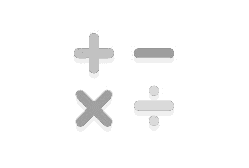









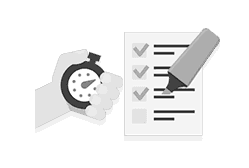


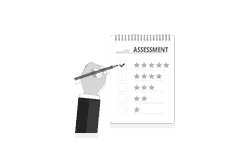


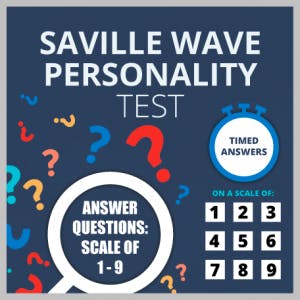
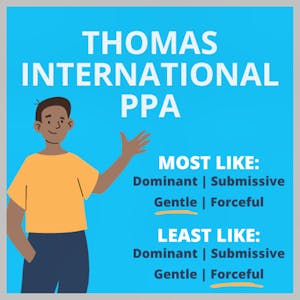
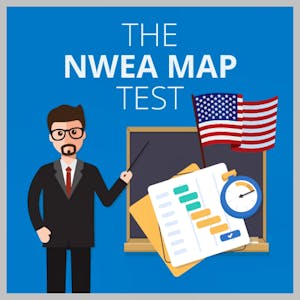
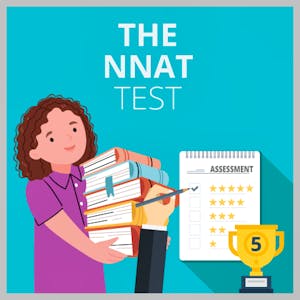
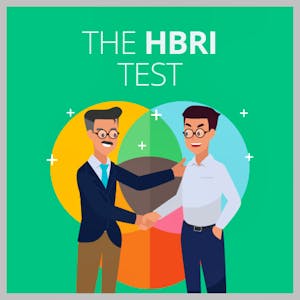
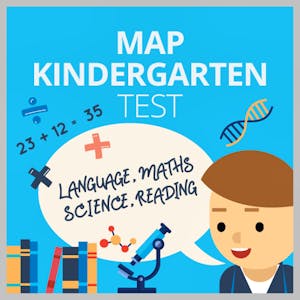
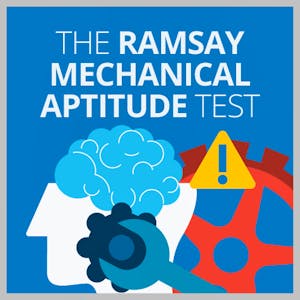
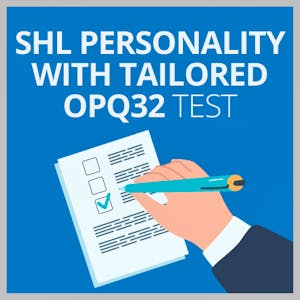
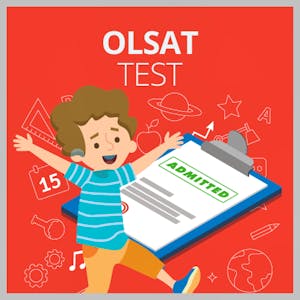
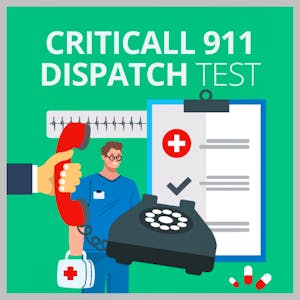

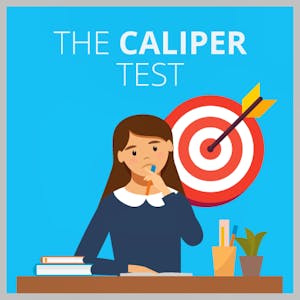
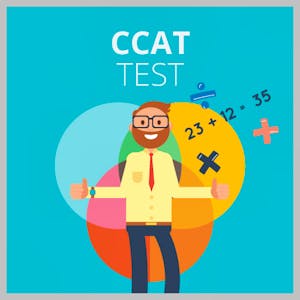
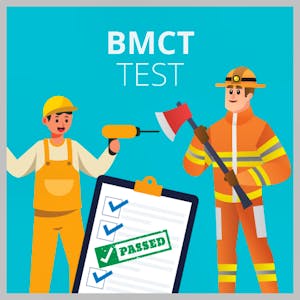
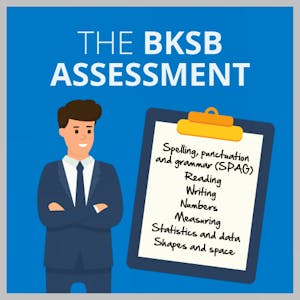
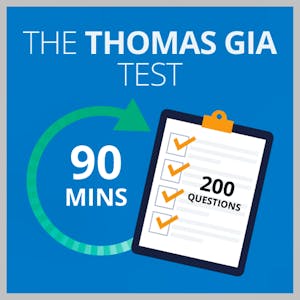
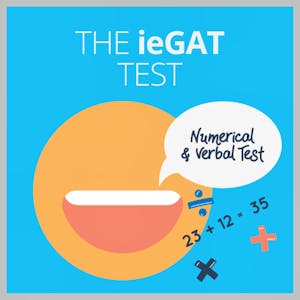
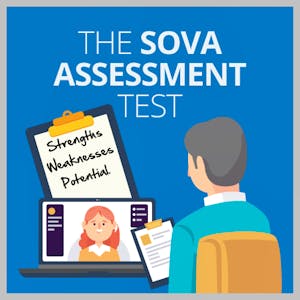
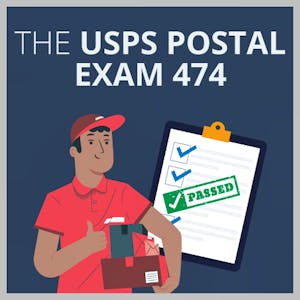
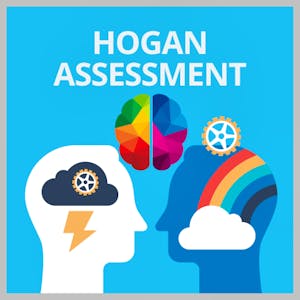
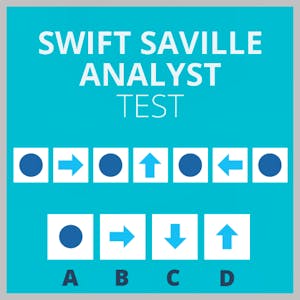
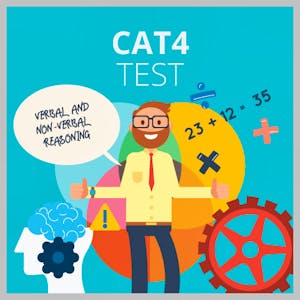
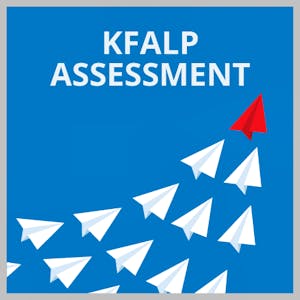
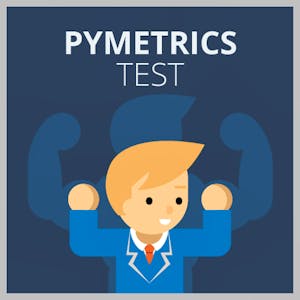
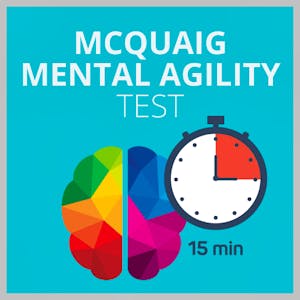
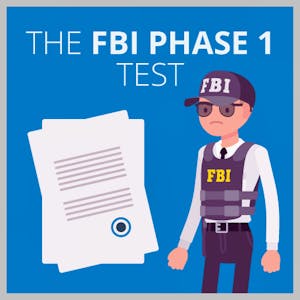

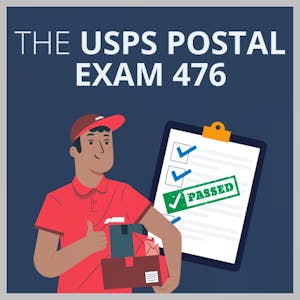
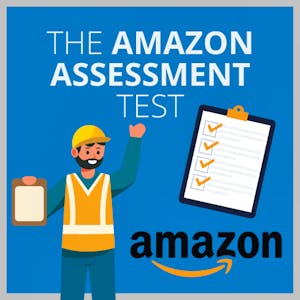
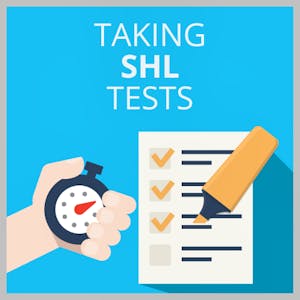
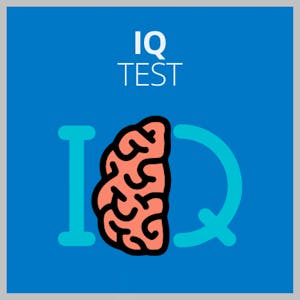
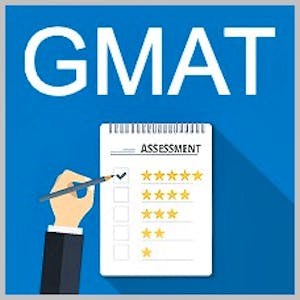
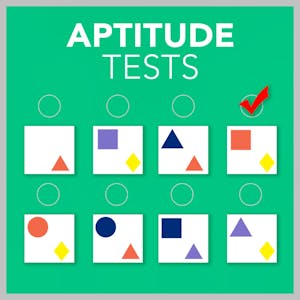

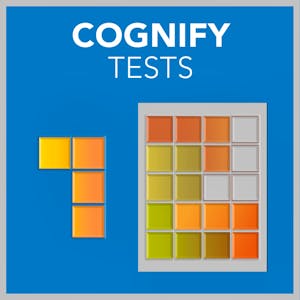
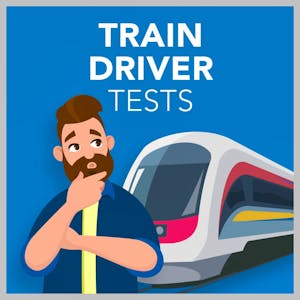
![Predictive Index Tests Fully Explained [With Example Questions + Answers]](https://www.datocms-assets.com/7756/1671731172-predictive-index-tests-none-x2.png?auto=%20compress%2C%20enhance%2Cformat&crop=focalpoint&fit=crop&fp-x=0.5&fp-y=0.5&h=300&w=300)
